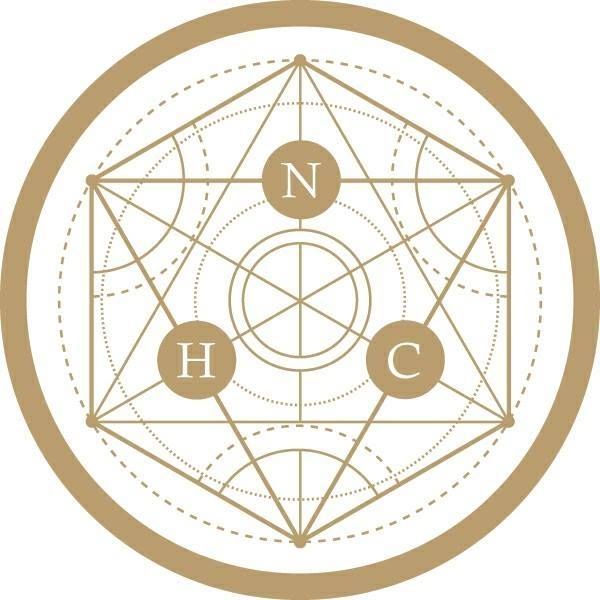预约演示
更新于:2025-05-07
Neutrophil Actin Dysfunction
中性粒细胞肌动蛋白功能障碍
更新于:2025-05-07
基本信息
别名 NAD、NEUTROPHIL ACTIN DYSFUNCTION、Neutrophil Actin Dysfunction + [1] |
简介- |
关联
11
项与 中性粒细胞肌动蛋白功能障碍 相关的临床试验NCT06505967
Effectiveness of Qualia NAD+ Supplementation on Intracellular NAD Levels: A Randomized Double-Blind Parallel Trial
The goal of this clinical trial is to determine if Qualia NAD+ effectively increases NAD+ levels in the blood and to evaluate its safety.
Researchers will compare Qualia NAD+ to a placebo (a look-alike substance that contains no active drug) to assess its efficacy in increasing NAD+ levels in the blood.
Participants will:
Take Qualia NAD+ or a placebo every day for 4 weeks. Undergo blood tests before and after the trial.
Researchers will compare Qualia NAD+ to a placebo (a look-alike substance that contains no active drug) to assess its efficacy in increasing NAD+ levels in the blood.
Participants will:
Take Qualia NAD+ or a placebo every day for 4 weeks. Undergo blood tests before and after the trial.
开始日期2024-06-10 |
申办/合作机构- |
NCT06005350
Validation of an Enzymatic Assay for Quantification of Nicotinamide Adenine Dinucleotide in Blood Plasma After Ingestion of the Vitamin B3 Variant Nicotinamide Riboside: a Randomized Controlled Trial
The investigation is a clinical study in which the impact of taking the dietary supplement nicotinamide riboside (NR) on the concentration of extracellular nicotinamide adenine dinucleotide (eNAD+) in human plasma over time will be determined. The study will be conducted in a randomized, double-blinded, and placebo-controlled manner.
开始日期2023-11-01 |
申办/合作机构 |
NCT06812416
Effectiveness of Qualia NAD+ Supplementation on Intracellular NAD Levels: a Randomized Double-Blind Parallel Trial
The current study is designed as a randomized double-blind placebo-controlled parallel trial. It aims to investigate the efficacy of Qualia NAD+ on intracellular NAD levels in blood samples (primary outcomes) and health-related quality of life (secondary outcomes) in an adult population experiencing moderate to severe joint pain between ages of 40 and 65 years.
开始日期2023-10-24 |
申办/合作机构 |
100 项与 中性粒细胞肌动蛋白功能障碍 相关的临床结果
登录后查看更多信息
100 项与 中性粒细胞肌动蛋白功能障碍 相关的转化医学
登录后查看更多信息
0 项与 中性粒细胞肌动蛋白功能障碍 相关的专利(医药)
登录后查看更多信息
886
项与 中性粒细胞肌动蛋白功能障碍 相关的文献(医药)2025-12-31·Hematology
Impaired LTB4-induced neutrophil chemotactic directionality in myelodysplastic neoplasms patients
Article
作者: Zhang, Zhe ; Liu, Yumei ; Liu, Hong ; Wang, Huaquan ; Shao, Zonghong ; Zhang, Wei ; Xie, Xinyan ; Yang, Liyan ; Li, Hongzhao
2025-06-01·Phytomedicine
Targeting neutrophil dysfunction in acute lung injury: Insights from active components of Chinese medicine
Article
作者: Zheng, Ping ; Hai, Dongmei ; Niu, Yang ; Wei, Wei ; Yu, Jianqiang ; Chi, Yannan ; Ma, Lin ; Liu, Ning ; Ye, Saiya ; Liu, Yue
2025-06-01·The French Journal of Urology
Ice water test to predict long-term detrusor activity in persistent neurogenic acontractile detrusor
Article
作者: Even, Alexia ; Levy, Jonathan ; Joussain, Charles ; Welniarz, Antoine ; Denys, Pierre
33
项与 中性粒细胞肌动蛋白功能障碍 相关的新闻(医药)2025-04-08
·小药说药
-01-引言信号转导和转录激活物(STAT)蛋白家族包括STAT1、STAT2、STAT3、STAT4、STAT5(STAT5A和STAT5B)和STAT6。在癌症中,STAT蛋白,特别是STAT3和STAT5,作为细胞因子、生长因子及其受体和肿瘤细胞中过表达的其他分子转导信号,同时在转录水平和表观遗传水平上调节大量基因的表达。这些基因参与肿瘤细胞增殖、抑制细胞凋亡、促进癌细胞干化和耐药性。STAT蛋白(尤其是STAT3)直接和间接调节癌细胞中的各种代谢相关过程,包括有氧糖酵解、氧化磷酸化、活性氧(ROS)产生、线粒体能量生成、线粒体膜完整性调节、谷氨酰胺代谢、脂质合成和脂质分解代谢。STAT蛋白还调节肿瘤微环境中免疫细胞的代谢,以诱导免疫抑制和肿瘤细胞侵袭。因此,STAT蛋白的代谢重编程作用对肿瘤生长、抗癌免疫和疾病进展具有深远影响。STAT蛋白已成为逆转多种癌症类型代谢失调的潜在有价值的靶点。-02-一、糖酵解和氧化磷酸化在正常细胞中,ATP和生物合成前体通过糖酵解和氧化代谢途径产生。以往研究发现,即使在氧气存在的情况下,癌细胞也会转向有氧糖酵解,而不是呼吸氧化磷酸化,以支持其快速增殖,这一现象被称为“Warburg效应”。癌细胞还可以利用氧化代谢通过线粒体中脂肪酸和氨基酸的氧化产生ATP。STAT蛋白在癌细胞中的氧糖酵解和呼吸氧化代谢中发挥重要作用。STAT3、STAT5和STAT6调节葡萄糖转运蛋白和一些酶类,如葡萄糖转运蛋白1(GLUT1)和GLUT3、己糖激酶2(HK2)、烯醇化酶1(ENO1)、丙酮酸激酶M2(PKM2)和乳酸脱氢酶A(LDHA)的表达和活性,它们对癌细胞的葡萄糖代谢至关重要。反过来,PKM2也促进STAT3和STAT5信号传导,STAT5激活缺氧诱导因子1α(HIF1α),导致癌细胞糖酵解的进一步上调。磷酸戊糖代谢途径是糖酵解途径的一个分支,产生NADPH和5-磷酸核糖。NADPH氧化酶(NOX)将电子从NADPH转移到氧,从而产生ROS。免疫调节细胞因子促进双氧化酶2(DUOX2)的上调,通过STAT1和STAT6信号通路导致ROS和DNA损伤的积累。ROS激活Janus激酶2(JAK2–STAT3)信号和STAT5,STAT5上调NOX4和NOX5L以产生更多ROS,增加肿瘤细胞的生长和增殖。除了调节Warburg效应外,线粒体STAT3还促进氧化磷酸化和线粒体电子运输链(ETC)活性。STAT3与细胞死亡调节蛋白GRIM19的相互作用可能促进STAT3向线粒体的易位。一旦进入线粒体,STAT3与ETC复合物I和II相互作用,导致ROS水平降低。STAT3的乙酰化也可能通过STAT3与丙酮酸脱氢酶复合物(PDC)亚基E1(PDC-E1)的相互作用促进线粒体能量调节。PDC是一种连接糖酵解和三羧酸(TCA)循环的线粒体酶,STAT3与PDC的结合加速丙酮酸进入TCA循环,并进一步增加癌细胞中ATP的合成。此外,STAT5还通过增加HIF1α的水平来促进Warburg效应,HIF1α驱动丙酮酸脱氢酶激酶亚型1(PDK1)的产生,从而阻止丙酮酸进入TCA循环,并将代谢转移到乳酸产生。此外,磷酸化的STAT5与线粒体中的PDC-E2相互作用,激活STAT5介导的转录,并促进代谢从氧化磷酸化转变为有氧糖酵解。-03- 二、能量代谢烟酰胺腺嘌呤二核苷酸(NAD+)是氧化磷酸化氧化还原反应中的一种辅酶,对能量代谢至关重要。NAD+水平随着人类年龄的增长而降低,其与癌症发病率的增加有关。NAD+水平降低会触发IL-6分泌,从而激活STAT3信号,促进致癌转化和癌细胞干性化。在一些癌细胞中,线粒体受损,ATP生产受损。为了弥补能量不足,STAT3诱导产生氢化物转移复合物(HTC),该复合物催化代谢循环,将氢化物阴离子从NADH转移到NADP+,从而再生NAD+并供应NADPH。在携带BRAFV600E突变的黑色素瘤细胞中,STAT5诱导NAMPT(烟酰胺磷酸核糖转移酶)的表达,这有助于维持NAD+水平。同时,STAT5诱导的NAMPT将黑色素瘤细胞转向与靶向治疗耐药相关的侵袭表型。除了促进NAD+生物发生外,癌细胞中NAMPT的表达增加了α-酮戊二酸(α-KG)水平,导致程序性细胞死亡配体1(PD-L1)通过STAT1依赖性IFN-γ途径上调。因此,癌细胞中NAMPT表达的升高和NAD+代谢的上调抑制了CD8+T细胞依赖性细胞毒性。-04-三、脂质代谢改变脂质合成和脂质分解代谢都在肿瘤发生和治疗抵抗中起着至关重要的作用。癌细胞有效地合成脂质并从肿瘤微环境中输入脂质,并对脂肪组织分泌的脂肪因子、细胞因子和生长因子做出反应。STAT蛋白不仅增加脂质合成和分解代谢,还增加肿瘤细胞的脂质输入,STAT蛋白在多个水平上调节癌症促进脂质代谢。STAT3和STAT5上调脂肪酸结合蛋白(FABPs)和CD36(脂质转运蛋白),导致脂质积聚增加,这支持肿瘤细胞的转移潜力。HER2介导的STAT3激活转录上调脂肪酸合成酶(FASN),这导致从头脂肪酸合成增加。STAT5还上调对脂肪生成重要的其他酶,包括乙酰辅酶A羧化酶1(ACC1)和甾醇调节元件结合蛋白1(SREBP1)。癌细胞的转移潜能与磷脂水平升高和三酰甘油水平降低相关。肿瘤坏死因子诱导蛋白8样蛋白3(TIPE3)也通过激活STAT3促进肺癌的发生,STAT3激活也与磷脂酰胆碱水平升高和三酰甘油水平降低有关。STAT6通过miR-197–叉头盒蛋白J2(FOXJ2)轴抑制胆固醇合成,从而减少内质网(ER)应激和肺癌进展。脂肪酸β-氧化(FAO)等脂质分解代谢途径对于将脂肪酸转化为肿瘤细胞生长和进展的能量来源是不可或缺的。FAO因其在癌症进展、化疗耐药性和癌症干细胞(CSC)维持方面的新作用而备受关注。FAO活性在许多类型的CSC中,以及在化疗耐药和放疗耐药的癌细胞中上调,STAT3介导的FAO限速酶肉碱O-棕榈酰转移酶1,肌肉亚型(CPT1-M)的转录上调对乳腺癌干细胞和化疗耐药细胞中的FAO上调至关重要。一项研究调查了FAO介导的乳腺癌细胞化疗耐药性的潜在机制,结果表明,FAO通过乙酰化激活STAT3,激活的STAT3转录上调ACSL4(长链酰基CoA合成酶4)的表达。这种酶增强磷脂合成,导致线粒体膜中磷脂含量增加,从而提高线粒体完整性。因此,线粒体凋亡途径变得无效,从而阻止化疗诱导的肿瘤细胞凋亡。此外,STAT3还直接调节LPL(脂蛋白脂酶)的表达,从而促进慢性淋巴细胞白血病细胞的存活。肿瘤细胞周围的脂肪组织还分泌脂肪酸、脂肪因子、细胞因子和/或激素(包括leptin、IL-6、VEGF和IL-8)。白色脂肪组织和肿瘤相关脂肪细胞释放的IL-6和leptin水平与STAT3的旁分泌激活相关,STAT3驱动乳腺癌转移、癌细胞干化和化疗耐药性。-05-四、谷氨酰胺代谢的调节除了代谢葡萄糖和脂质外,癌细胞还表现出对谷氨酰胺代谢的依赖,以促进增殖、存活和侵袭。这种谷氨酰胺依赖型癌细胞经历代谢重编程,通过TCA循环驱动谷氨酰胺的利用。STAT蛋白除了通过转录调节促进谷氨酰胺代谢外,参与谷氨酰胺代谢途径的多种酶和受体还通过STAT信号的作用促进细胞增殖、细胞周期进展、上皮间质转化,在癌症进展中发挥重要作用。许多癌细胞(包括非小细胞肺癌、乳腺癌和头颈癌细胞)高度依赖谷氨酰胺以促进其生长和生存,并表现出谷氨酰胺转运体的上调。STAT蛋白转录调控癌细胞中参与谷氨酰胺代谢的几种分子:STAT3通过MYC上调ATB(0),ATB(0)介导的谷氨酰胺摄取维持癌细胞中谷氨酰胺、谷胱甘肽和多种三羧酸循环代谢产物的高细胞内水平。谷氨酰胺一旦进入肿瘤细胞,就会转化为谷氨酸并激活谷氨酰胺酶,谷氨酰胺酶是谷氨酰胺分解的限速酶,在某些癌症中被上调。激活的STAT3直接增加编码谷氨酰胺酶的GLS1的表达。有趣的是,STAT3还上调了关键的ROS清除剂谷胱甘肽,从而保持ROS水平。阻断STAT3抑制谷胱甘肽的产生,导致ROS介导的肿瘤细胞凋亡。此外,MYC和STAT5上调谷氨酰胺合成酶,后者催化谷氨酸转化为谷氨酰胺。这种代谢改变导致核苷酸的产生增加,这与肿瘤细胞的放射治疗耐药性有关。此外,谷氨酰胺和谷氨酰胺代谢酶也通过增加STAT3活性或水平促进癌症进展。谷氨酸通过谷氨酸脱氢酶1(GDH1)或各种氨基转移酶脱氨基为α-酮戊二酸(α-KG),产生L-氨基酸。GDH1活性在结直肠癌及其转移性病变中升高,这与STAT3介导的上皮间质转化(EMT)相关。最后,STAT3信号可以通过上调线粒体中的α-KG来控制细胞核中的DNA甲基化,由此产生的DNA甲基化异常提供了对核基因表达的表观遗传控制。-06-五、肿瘤免疫代谢越来越多的证据证明STAT蛋白在调节肿瘤相关免疫细胞中的糖酵解、氧化磷酸化、ROS产生、脂质代谢、FAO和谷氨酰胺解中发挥重要作用,这些变化也影响抗肿瘤免疫反应。STAT3、STAT5和STAT6介导肿瘤微环境中免疫细胞的代谢重编程,这增加了免疫抑制细胞类型的积累,特别是髓源性抑制细胞(MDSCs)和肿瘤相关巨噬细胞(TAMs),STAT蛋白还重编程肿瘤微环境中效应T细胞和自然杀伤(NK)细胞的代谢,这些变化以不同方式对其抗肿瘤功能产生积极和消极影响。STAT蛋白诱导代谢重组,这对MDSCs和TAMs的免疫抑制功能很重要。STAT蛋白有助于产生多种免疫抑制因子,包括PD-L1、IL-10、IL-6、IDO1。此外,STAT3、STAT5和STAT1调节ROS水平,ROS可诱导T细胞凋亡和/或铁死亡,并抑制T细胞功能。粒细胞集落刺激因子(G-CSF)和粒细胞-巨噬细胞集落刺激因素(GM-CSF)分别激活STAT3和STAT5,以上调长链脂肪酸转运蛋白2(FATP2)、FATP4和FATP5。这些FATPs和CD36的上调增强了脂质摄取,这促进了MDSCs和TAM的免疫抑制作用。MDSCs中增强的谷氨酰胺裂解对癌症免疫抑制也很重要。事实上,阻断MDSC中的谷氨酰胺代谢会下调pSTAT3和pSTAT1,从而减少STAT3调控的下游基因的表达,包括IL-10和IDO1。尽管STAT蛋白介导的MDSCs和TAMs中ROS、脂质摄取、脂肪酸氧化和谷氨酰胺代谢的上调通常促进免疫抑制,但CD8+T细胞中STAT蛋白同样介导的代谢变化可具有抑癌和促癌作用。例如,STAT3通过增强FAO活性来抑制CD8+T细胞效应器功能。然而,IL-9诱导的STAT3活性增加和FAO保护Tc9 T细胞免受ROS诱导的铁死亡,并增强其抗肿瘤作用。此外,FAO对于记忆T细胞的形成始终是必要的,这在抗肿瘤免疫中很重要。然而,STAT介导的糖酵解上调在T细胞抗肿瘤功能中具有相反的作用。此外,尽管需要更多的研究来解决这些明显的矛盾,但STAT3介导的NK细胞的Warburg效应可能对NK细胞的抗肿瘤功能至关重要。-07-结语代谢的重编程是公认的癌症进展、治疗抵抗和免疫抑制的驱动因素。大量证据表明,STAT蛋白——尤其是STAT3、STAT5和STAT6,以及STAT1——在协调癌细胞代谢的多个方面发挥着重要作用。STAT蛋白介导的代谢改变影响癌细胞和多种肿瘤相关免疫细胞。引人注目的是,肿瘤微环境中肿瘤细胞或免疫细胞的相同代谢变化可能对癌症进展产生类似或相反的影响。例如STAT3在肿瘤微环境中的阻断部分通过促进糖酵解的增加而增强了T细胞的扩增和肿瘤的浸润,但通过STAT3介导的糖酵解增加以及氧化磷酸化的减少,NK细胞的增殖能力及其抗肿瘤作用都大大增加。因此,由于其在通过多种机制促进癌细胞存活、侵袭、治疗抵抗和免疫抑制方面的重要作用,以STAT3或STAT5为靶点的抗癌治疗有望产生有益的临床效果。参考资料:1.STAT proteins in cancer: orchestration of metabolism. Nat Rev Cancer.2023 Jan 3.公众号内回复“ADC”或扫描下方图片中的二维码免费下载《抗体偶联药物:从基础到临床》的PDF格式电子书!公众号已建立“小药说药专业交流群”微信行业交流群以及读者交流群,扫描下方小编二维码加入,入行业群请主动告知姓名、工作单位和职务。
临床1期多肽偶联药物蛋白降解靶向嵌合体
2025-01-12
·小药说药
关注小药说药,一起成长!
前言
遗传学的中心法则认为,核酸携带人类遗传信息,在生长、发育和繁殖等生命过程中起着至关重要的作用,核酸可用于修饰遗传信息以治疗各种疾病。核酸药物(NAD)是一类基于DNA、RNA或合成寡核苷酸类似物的基因治疗药物。它们在临床应用方面具有相当大的潜力,如治疗细菌感染、肿瘤和神经肌肉疾病,这些药物可以通过基因抑制、替代和编辑实现长期疗效。
NAD作为一种新兴的治疗方式,可以精确地针对特定的基因或基因产物,实现精准治疗。此外,与传统小分子药物和抗体药物相比,NAD的发现和开发周期更短,成本相对较低,这有助于加速新药的研发。NAD不仅在遗传性疾病和癌症治疗中具有潜力,还可以应用于其他多种疾病,如心血管疾病、代谢性疾病、神经退行性疾病等。因此,NAD的未来前景光明,根据市场分析,NAD的市场规模预计将在未来几年内显著增长。
NAD的历史发展
NAD的发展与基础分子生物学的重大发现和对生命活动的持续观察密不可分。1869年,Friedrich Miescher从白细胞中发现了一种名为“核素”的新分子,这标志着DNA发现的开始。随后,DNA双螺旋结构和遗传学中心法则的揭示阐明了核酸是传递遗传信息的。在1956年,Rich和Davies发现,基于互补碱基配对的原理,RNA可以形成类似于DNA的双链结构,这一结果为开发RNA双链药物奠定了基础,包括microRNAs(miRNAs)和小干扰RNAs(siRNA)。1960年,Rich报道了DNA/RNA杂交现象;1978年,在这一发现的基础上,Zamecnik和Stephenson使用靶向劳斯肉瘤病毒35S RNA的特定寡核苷酸链来抑制病毒复制,这标志着反义寡核苷酸(ASO)药物在疾病治疗中的应用原型。
随着转录和翻译研究的深入,人们发现了RNA剪接过程。RNA剪接是基因表达的关键步骤,靶向剪接位点的ASO可以恢复缺陷基因的正确剪接,而不仅仅是下调基因表达。这一发现为与错误剪接相关的疾病提供了一种新的治疗策略。
1998年,Andrew Fire和Craig Mello研究发现双链RNA(dsRNA)在秀丽隐杆线虫中具有强大的基因沉默作用,他们将这一发现称为RNA干扰(RNAi)。RNAi被迅速应用于抑制丙型肝炎病毒在小鼠体内的复制,标志着siRNA介导的体内基因沉默的最早证据。2006年,他们因RNAi技术获得了诺贝尔生理学和医学奖。随着先进的化学修饰和靶向递送系统的开发,2018年美国食品和药物管理局(FDA)批准了第一种siRNA药物patisiran,用于治疗遗传性甲状腺素介导的淀粉样变性的多发性神经病。
1984年,Krieg和Melton使用从病毒中提取的RNA聚合酶从DNA模板中进行体外转录,成功地在无细胞系统中实现了mRNA表达。因此,自20世纪90年代以来,体外合成的mRNA越来越多地用于预防和治疗疫苗中的蛋白质替代。2005年,假尿苷(Ψ)修饰的发现解决了体外合成mRNA的免疫原性问题,2008年启动了针对黑色素瘤的mRNA疫苗的首次人体试验。2020年,在新冠大流行期间,FDA授权紧急使用mRNA疫苗。52 2023年,Katalin
Kariko和Drew Weissman因开创了降低mRNA免疫原性的核苷碱基修饰技术而获得诺贝尔生理学和医学奖,这为NAD在治疗人类疾病方面开辟了新的临床应用。
同时,发现其他类型的核酸和生物现象进一步扩大了NAD的范围。基因编辑技术的出现为开发基因突变疾病的新疗法奠定了基础。最近,第一种基于簇状规则间隔短回文重复序列(CRISPR)/Cas9技术的基因疗法已被批准上市,这给NAD的发展带来了革命性的变化。
NADs的分类和治疗机制
根据其作用机制,NAD可大致分为三类:第一类包括靶向核酸通过促进或抑制翻译来调节蛋白质表达的NAD。这一类别主要包括ASO、siRNA、miRNA、saRNAs和CRISPR/Cas系统;第二类包括靶向蛋白质的NAD,如适配体;第三类包括表达蛋白质的NAD,如体外转录的mRNA。
靶向核酸的NAD
ASO:ASO是人工合成的单链寡核苷酸链,根据沃森-克里克碱基配对原理,通过特异性结合调节和靶向RNA的功能。临床使用的ASO的作用机制主要包括核糖核酸酶H(RNase
H)介导的降解和空间阻断机制。基于这一机制的代表性药物包括Fomiversen(Vitravene®)、Mipomersen(Kynamro®,Delisted)、Inotersen(Tegesdi®)、Volanesorsen(Waylivra®)和Tofersen(Qalsody®)。
siRNA:siRNA是一种双链RNA分子,通常长19-23个碱基对,siRNA通过阻断mRNA翻译诱导基因沉默。与ASO不同,siRNA介导的基因沉默是通过RNA诱导的沉默复合物(RISC)而不是RNase
H。一旦成熟的siRNA进入细胞,它就会与Argonaute-2(AGO2)蛋白形成复合物,它引导RISC切割靶序列,从而通过下调特定蛋白质的翻译来达到治疗效果。迄今为止,已有多个siRNA药物获得国际批准。第一种siRNA药物patisiran(Onpattro®),已被批准通过降解编码转甲状腺素蛋白(TTR)的mRNA来治疗遗传性转甲状腺素蛋白介导的淀粉样变。
miRNA:在真核生物中发现的内源性非编码RNA可以作为基因调节因子。人们对miRNA的调控机制进行了广泛的研究,在Drosha/DGCR、Exportin-5/RAN-GTP和Dicer/TRBP等复合物的帮助下,从miRNA基因的非编码区转录的初级miRNA(pri-miRNA)被加工成成熟的miRNA。miRNA与Argonaute蛋白结合形成miRNA诱导沉默复合物(miRISC),它可以通过碱基对互补沉默靶转录物。与siRNA介导的基因沉默不同,miRNA可以同时识别和调节多个靶mRNA的表达,因为它们的互补性较低。miRNA药物的开发主要包括两类:miRNA模拟物和miRNA抑制剂。Viridian
Therapeutics开发的miRNA药物MRG-201(Remlarsen)模拟microRNA-29b来逆转纤维化,从而抑制皮肤伤口中的纤维增殖。除了MRG-201,Viridian Therapeutics还有其他几种基于miRNA的药物,包括MRG-106(Cobomarsen),其靶向miR-155抑制肿瘤;MRG-110,其靶向miR-92促进血管生成。到目前为止,还没有任何miRNA药物被批准上市。
saRNA:除了经典的基因沉默机制外,RNA激活的发现为基因调控提供了新的视角。RNA激活是一种由称为saRNA的小dsRNA介导的基因调控现象,saRNA靶向基因启动子序列以增强靶基因的转录。通过内吞作用进入细胞后,saRNA与AGO2结合,AGO2和反义链被转运到细胞核中,在那里它们与启动子区域结合。随后,AGO2招募RNA聚合酶相关蛋白CTR9同源物和RNA解旋酶II(RHA)形成RNA诱导的转录激活(RITA)复合物。该复合物与RNA聚合酶II(RNAP II)相互作用,并刺激转录的启动和延长。MiNA Therapeutics开发的saRNA药物MTL-CEPA靶向CCAAT/增强子结合蛋白α(CEBPA)。I期试验结果(NCT05097911)表明,MTL-CEBAPA在治疗肝细胞癌方面具有良好的安全性,并可能通过调节免疫抑制来增强酪氨酸激酶抑制剂的治疗效果。除了MTL-CEMPA外,MiNA Therapeutics还有几种saRNA候选物正在临床前开发中。
CRISPR/Cas9系统:基因编辑是一种基因工程技术,通过插入、缺失和位点特异性突变精确修饰靶基因。CRISPR介导的基因编辑系统主要涉及Cas9和单导向RNA(sgRNA),在基因组的特定位置引入DNA双链断裂(DSBs)。这些DSB通常通过同源定向修复(HDR)或非同源末端连接(NHEJ)进行修复,实现突变或外源基因插入。Exa-cel(Casgevy®)于2023年11月获得批准,是第一种基于CRISPR/Cass9系统的基因编辑治疗药物,用于治疗镰状细胞病(SCD)和输血依赖性β-地中海贫血(TDT)。
靶向蛋白质的NAD
适配体是单链寡核苷酸分子,与其他基于核酸的药物不同,适配体依靠其独特的三维构象特异性识别和结合靶分子,如肽、蛋白质、病毒、细菌和细胞。这类似于介导抗体-抗原相互作用和复合物形成的构象识别。然而,与抗体相比,适配体具有几个优点,包括高热稳定性和生理稳定性、低免疫原性和更广泛的靶特异性。适配体在治疗癌症、眼科和心血管疾病(CVD)方面显示出了很好的应用前景。
2004年,FDA批准了第一种适配体药物pegaptanib(Macugen®),用于治疗新生血管性年龄相关性黄斑变性(AMD)。然而,由于其疗效不佳以及与Lucentis等抗VEGF抗体药物的竞争,pegaptanib被撤出市场。尽管如此,适配体的研究仍在继续。2023年8月,avacincaptad
pegol被批准用于治疗继发于干性AMD的地图状萎缩(GA)。
表达蛋白质的NAD
与通过直接结合mRNA或蛋白质发挥治疗作用的NAD相比, mRNA药物有两种治疗策略。一种策略是蛋白质替代疗法,它涉及将外源性mRNAs引入细胞以表达功能性蛋白质或补充缺陷性蛋白质。例如,mRNA-3927编码丙酰辅酶A羧化酶的α和β亚基,旨在治疗丙酸血症。针对该适应症的I/II期试验(NCT05130437)已在儿科患者中启动。此外,mRNA-3704和mRNA-3705编码MUT,旨在治疗甲基丙二酸血症,目前正在研究中。
第二种方法涉及mRNA疫苗,它通过直接翻译含mRNA的抗原蛋白来激活身体的免疫反应,以对抗传染病和肿瘤。在新冠肺炎大流行期间,FDA授权紧急使用辉瑞-BioNTech开发的BNT162b2和Moderna开发的mRNA-1273。
NAD开发的挑战
与对蛋白质发挥药理作用的传统小分子和抗体药物不同,大多数NAD直接调节基因表达,提供了更广泛的靶点。这对于解决具有难以用传统药物靶向的缺陷蛋白质的基因尤其有价值,在治疗罕见病、慢性病、传染病和其他代谢性疾病方面显示出巨大的潜力。然而,尽管有这些优势,NAD的开发仍面临着一系列的挑战。
药代动力学和稳定性
裸核酸在体内稳定性较差,可以在血液中降解。它们在血液和组织液中经历酶(核酸酶和RNA酶)或化学(氧化和水解)降解,或被肾脏过滤和清除。尽管研究人员已经通过几种化学修饰来增强NAD的稳定性,但几乎所有这些方法都会影响疗效和安全性。
免疫原性
外源核酸可以被免疫系统中的模式识别受体识别为外源信号,引发免疫反应,损害核酸的结构完整性和稳定性。仔细设计和修饰NAD可以减轻免疫原性,但这需要大量的临床测试。
脱靶效应
治疗性核酸在体内往往缺乏足够的靶向能力。这种不充分的靶向性导致疾病部位的NAD浓度低,以及意外的基因沉默或激活,可能会因需要更高的剂量而导致安全问题。设计特定的核酸和进行彻底的脱靶筛选对于NAD的有效临床应用至关重要。
摄取效率和内体逃逸
由于NAD的大小、电荷和亲水性,很难将其有效吸收到细胞中。带负电荷的核酸不容易穿过细胞膜的带负电荷脂质双层。此外,内体逃逸是一个重要的障碍,因为核酸经常被困在内体中并降解。进入细胞后,NAD通常被内体捕获。只有那些成功逃脱内体的NAD才能发挥其治疗作用。内体逃逸不足会导致疗效降低和脱靶毒性增加。
生产制造
除了前面的问题,NAD还面临着制造和规模放大的挑战。大规模生产具有一致质量的NAD需要先进的制造技术和严格的质量控制措施。这导致了相对较高的成本,影响了患者的可及性和可负担性。
小结
近年来,以核酸药物为基础的疗法逐渐成为各种疾病的潜在干预策略。一般来说,NAD疗法根据其作用方式和使用的分子分为不同的类别。许多NAD疗法已被开发用于各种疾病,并且在许多临床前和临床研究中获得非常有希望的结果,尤其是mRNA疫苗成为目前最火热的研究领域之一。目前,基于NAD的疗法依然存在许多挑战,包括递送系统在内的许多方面仍需要得到进一步的研究和开发,然而不可否认,未来十年属于NAD治疗的时代终将到来。
参考文献:
1.RNA Therapeutics - Research and Clinical Advancements. Front Mol Biosci. 2021; 8: 710738.
2. mRNA vaccines for infectious diseases: principles, delivery and clinical translation. Nat RevDrugDiscov. 2021 Aug 25 : 1–22.
3. Nucleic acid drugs: recent progress and
future perspectives. Signal Transduct Target Ther. 2024 Nov 29;9:316
公众号内回复“ADC”或扫描下方图片中的二维码免费下载《抗体偶联药物:从基础到临床》的PDF格式电子书!
公众号已建立“小药说药专业交流群”微信行业交流群以及读者交流群,扫描下方小编二维码加入,入行业群请主动告知姓名、工作单位和职务。
寡核苷酸核酸药物siRNA信使RNA基因疗法
2024-11-29
1.介绍
培养中的细胞从其生长介质中吸收糖分、氨基酸、脂质和核苷酸。它们代谢这些化合物以获取能量,并用它们来增加细胞质量、分裂成更多的细胞和生产产品。蛋白质是由肽键连接的氨基酸聚合物,占典型细胞干质量的50%以上。蛋白质合成是一个能量密集型过程。每个肽键至少需要3个ATP,这几乎是通过氧化一个葡萄糖产生的能量的1/10。一个高产的重组细胞每天可能产生超过40 pg的IgG蛋白。每个细胞大约有400 pg的细胞质量(或大约200 pg的细胞蛋白质),并且可以在一天内将其生物量翻倍。因此,蛋白质产品的生产是细胞的主要能量负担。
经典的细胞培养基含有2-5克/升的葡萄糖,氨基酸的水平略低(约0.8毫摩尔,或1克/升)。这些营养物质的消耗通常只产生约2-5 x 10^9个细胞/升,或大约0.2-0.5克/升的细胞干质量。从葡萄糖和其他营养物质生产细胞质量的效率相当低。
葡萄糖是大多数细胞最重要的能量来源。培养的细胞还消耗大量的谷氨酰胺,仅次于葡萄糖。葡萄糖代谢的途径(称为糖酵解)是一个关键的代谢途径,几乎所有哺乳动物都几乎相同。当使用另一种糖,如半乳糖或果糖作为碳水化合物来源时,使用相同的途径,加上几个额外的进入反应。
一个葡萄糖分子的完全氧化消耗6个O2并产生6个H2O和6个CO2(面板3.1)。谷氨酰胺的完全氧化使用4.5个O2并产生2个H2O和5个CO2。
然而,对于培养中的细胞来说,大多数消耗的葡萄糖并没有被完全氧化;而是被转化为乳酸并排出。通过转化为乳酸而不是完全氧化为CO2,每摩尔葡萄糖产生的能量要少得多。这是从葡萄糖生产细胞质量效率低的根本原因。
这种“浪费”的代谢在几乎所有脊椎动物细胞培养中都很常见。对于生物加工来说,代谢副产品的积累抑制了细胞生长并阻碍了生产力。
当细胞快速生长时,它们总是从葡萄糖中产生乳酸。然而,在某些条件下(例如,在进料批培养的稳定期),乳酸也可能被消耗。在看似相同的培养条件下使用相同的细胞系和相同的标准操作协议,细胞可能表现出不同的代谢行为并不罕见。在一些运行中,从快速生长期到稳定期,乳酸在整个进料批培养中产生。但在其他运行中,指数生长期中的乳酸产生在稳定期转变为乳酸消耗。
当细胞培养过程的代谢行为波动时,通常可以看到高产率运行从乳酸产生转变为乳酸消耗,而低生产力运行在整个培养过程中保持乳酸产生模式(图3.1)。这种观察证明了细胞代谢在影响生产力方面的重要性。本章讨论了对培养中的细胞至关重要的生化途径。
图 3.1 制造运行中的乳酸和铵离子浓度曲线。展示了高产物滴度(深灰色)和低产物滴度(浅灰色)的三次运行。乳酸被产生并积累,然后要么继续增加要么被消耗。铵离子浓度曲线在所有六次运行中都相似。乳酸曲线与生产率相关,但铵离子则不相关。数据来源:Charaniya, S., 等,挖掘制造数据以发现高生产率过程特征。《生物技术杂志》,2010年,147(3-4): 页码 186–197。
2.葡萄糖和能量代谢
葡萄糖主要通过三条途径进行分解:糖酵解、磷酸戊糖途径(PPP)和三羧酸(TCA)循环(面板3.2)。在糖酵解中,一摩尔葡萄糖转化为两摩尔丙酮酸。在这个分解段中,只有一小部分葡萄糖的化学潜能被转化为细胞中“可用”的化学潜能形式(即ATP)。每摩尔葡萄糖产生两摩尔ATP和NADH。丙酮酸可能进入TCA循环进行进一步氧化,或者可能成为乳酸的分流产物(在中性pH下它以乳酸形式存在)。在TCA循环期间,葡萄糖的碳骨架最终被分解成CO2。PPP是糖酵解的一个分流。它为核苷酸合成产生五碳糖,并为许多生物合成反应提供NADPH,并维持细胞中的平衡氧化还原状态。
在真核细胞中,糖酵解和PPP发生在细胞质中,而丙酮酸进一步氧化成CO2发生在线粒体中。正是在线粒体中,葡萄糖的大部分化学潜能被转化为ATP,用于细胞合成和其他能量依赖的细胞过程。
2.1.葡萄糖的氧化
糖酵解
培养基中的葡萄糖通过葡萄糖转运蛋白进入细胞。在糖酵解过程中,产生高能化合物(ATP和NADH)。然而,糖酵解的第一部分实际上消耗了每个葡萄糖的两个ATP(图3.2,面板3.3)。这两个ATP被用来在葡萄糖分子的每个末端添加一个磷酸基团。第一次磷酸化将葡萄糖转化为葡萄糖6磷酸(G6P)。在异构化为果糖6磷酸(F6P)后,第二个磷酸基团被添加以产生果糖1,6二磷酸(F16BP)。
图 3.2 糖酵解途径。仅显示了化学物种,未显示它们之间的计量关系。也显示了每种化合物的缩写。一摩尔葡萄糖产生两摩尔丙酮酸。
这两个磷酸基团,作为亲核中心,帮助将它们周围的电子云拉向分子的两端,从而使葡萄糖分子中间的碳碳键容易受到酶促裂解(图3.3)。六碳F16BP变成两个三碳化合物:甘油醛3磷酸(GAP)和二羟基丙酮磷酸(DHAP)。这两种化合物通过可逆反应相互转化。GAP向下游反应的持续利用有效地将DHAP拉向GAP。原来的1摩尔葡萄糖现在变成2摩尔GAP并进一步在糖酵解中下游移动。2 GAP转化为2丙酮酸的最终产物也转化了2 NAD+和4 ADP为2 NADH和4 ATP。葡萄糖转化为2丙酮酸在糖酵解中的转化的净能量后果是产生2 ATP(回想一下,2 ATP被消耗以激活葡萄糖)和2 NADH。注意,NAD+通常在文本中被表示为NAD。
图 3.3 糖酵解中关键化合物的结构以及糖酵解中己糖分裂反应的示意图。糖中的羰基由一个圆圈表示。
三羧酸(TCA)循环
丙酮酸的进一步氧化发生在线粒体中。丙酮酸通过转运蛋白进入线粒体基质后,首先经历脱羧反应变成乙酰辅酶A,同时释放1个CO2(图3.4a)。脱羧反应断裂了一个碳-碳(C-C)键。C-C键的能量保存在产生的1个NADH中,以及乙酰辅酶A的高能键中。乙酰辅酶A随后进入TCA循环,在经过一轮TCA循环后被分解成2个CO2。该途径是循环的,四到六个碳的骨架在一个循环中循环(图3.4a)。在循环的开始,乙酰辅酶A使用其高能键在四碳的草酰乙酸(OAA)上形成一个新的C-C键变成六碳的柠檬酸。柠檬酸有三个羧酸基团,因此得名“三羧酸循环”(面板3.4)。TCA循环也被称为柠檬酸循环和克雷布斯循环。柠檬酸和其他一些TCA循环中间体及其衍生的氨基酸的结构在图3.5中展示。
图 3.4 (a) 三羧酸循环。(b) 电子传递链和氧化磷酸化。(c) 以线粒体为中心的代谢物反应网络。许多代谢物,包括α-酮戊二酸(α-KG)、谷氨酸(Glu)、苹果酸(Mal)、天冬氨酸(Asp)、草酰乙酸(OAA)和柠檬酸,都在多个反应/共转运中共享。
图 3.5 三羧酸循环中的化合物以及可以从它们的碳骨架衍生的氨基酸。
作为2个丙酮酸进入线粒体的葡萄糖中的6个碳原子,在经过一轮TCA循环后被转换成6个CO2。这在葡萄糖的氧化反应中可以看到,其中1摩尔的葡萄糖产生6摩尔的CO2(面板3.1)。然而,在糖酵解或TCA循环中,并没有分子氧参与任何反应。这6个CO2是通过脱羧反应释放的;它们来自丙酮酸、柠檬酸和α-酮戊二酸的碳骨架,而无需分子氧的参与。在这两个反应中,紧邻2-酮基的羧酸基团被释放(由丙酮酸脱氢酶和α-酮戊二酸脱氢酶催化),CO-COO-键断裂的能量保存在高能化合物酰辅酶A(分别是乙酰辅酶A和琥珀酰辅酶A)和NADH中。在另一种情况下,异柠檬酸脱氢酶反应,异柠檬酸中的三个羧酸基团之一被释放,产生1个NADH。在TCA循环的后半部分,琥珀酰辅酶A进一步氧化通过延胡索酸和苹果酸再生OAA,并保存在NADH、FADH2和GTP中的化学潜能。
电子传递和氧化磷酸化
在葡萄糖的氧化中,如果C-C键是通过直接与氧气反应而断裂的,如煤或木材的燃烧,需要非常高的温度来提供触发反应所需的活化能。此外,C-C键中的化学潜能会以热量的形式释放。细胞利用脱羧反应来断裂C-C键并释放CO2,同时将化学潜能保存在NADH中。氧气因此被用来从NADH和FADH2中提取化学潜能,以生成可以在细胞工作中使用的ATP。总共有6个氧气参与了在葡萄糖氧化中产生的NADH/FADH2的氧化,因此解释了在葡萄糖氧化的化学计量方程式中所示的氧化1个葡萄糖所需的6个O2(面板3.1)。这种转移化学潜能从NADH到ATP并与氧气反应的过程是使用电子传递和氧化磷酸化(oxphos)来完成的。
从NADH和FADH2中提取化学潜能的过程是通过线粒体内膜中的电子传递链发生的(面板3.5)。NADH和FADH2的高能电子进入电子传递链,通过包括黄素、铁硫复合物、血红素和铜离子在内的电子载体的介导,这些载体嵌入在诸如NADH脱氢酶等许多大的酶复合体中,沿着能量梯度移动。在电子传递链的末端,电子由氧气接收,然后与一个质子反应形成H2O(图3.4b)。
释放的能量随后被用来触发质子泵推动H+从线粒体内膜中出来。H+从线粒体的输出在膜上创造了约1.0单位的pH差异,以及大约-120毫伏的电势。由于线粒体膜内更高的pH(更低的质子浓度)和过多的负电荷,线粒体外的质子离子倾向于穿过线粒体膜并进入线粒体基质。质子离子通过嵌入线粒体内膜的ATP合酶进入线粒体。当质子通过ATP合酶时,一系列的蛋白质构象变化将一个ADP和一个磷酸基团聚集在一起合成ATP。电子传递和ATP的生成通常被称为“氧化磷酸化”(面板3.6)。
氧化磷酸化的能源产量的一般估计是每个NADH产生3个ATP,每个FADH2产生2个ATP。然而,每个NADH或FADH2(因此也是每个葡萄糖)产生的ATP数量在不同物种中有所不同,这是由于它们ATP合酶的表达不同。对于哺乳动物来说,每完全氧化一个葡萄糖分子大约产生30-32摩尔的ATP(面板3.7)。旧的文献倾向于列出每个葡萄糖分子36摩尔ATP的数量。在某些生理条件下,电子传递链和氧化磷酸化是解耦的。而不是生成ATP,来自NADH的能量被释放为热量以维持体温。例如,这在冬眠动物中可以看到。
从葡萄糖分解成两摩尔丙酮酸产生的2个ATP和2个NADH(或相当于6个ATP的能量,因为细胞质中的1个NADH大致可以认为是2个ATP)的能量,只有从葡萄糖完全氧化到CO2和H2O可以产生的大约1/6。因此,葡萄糖氧化中绝大多数的能量转换发生在线粒体中。
2.2.磷酸戊糖途径(PPP)
PPP是糖酵解的一个重要支路,提供五碳糖(以糖磷酸的形式)和NADPH。五碳糖转化为核糖和脱氧核糖,以制造核苷酸和脱氧核苷酸,用于RNA和DNA的合成。NADPH提供许多生物合成反应中使用的还原潜力(图3.6,面板3.8)。
图 3.6 磷酸戊糖途径包括其氧化分支和分子转化分支。异构化、转醛醇酶和转酮酶反应都是可逆的。为了说明每个反应中反应物和产物的配对,只展示了转化(或非氧化)反应(在阴影区域)的一个方向。
PPP由氧化段和单糖转化段组成。在第一段中,来自糖酵解的葡萄糖6磷酸被氧化以产生2个NADPH,然后脱羧形成五碳的核糖5磷酸。分子转化段将五碳糖磷酸转化为1个三碳(GAP)和2个六碳糖磷酸(F6P),重新加入糖酵解(面板3.8)。
细胞使用两种不同的烟酰胺腺嘌呤二核苷酸作为还原化学潜能载体:NADH和NADPH。NADH用于在糖酵解、TCA循环和脂质分解中储存化学潜能。最终,NADH被用来在线粒体中产生ATP。
另一方面,NADPH携带的化学潜能被用于生物合成反应中(例如,脂质或核苷酸的合成)。NADPH也被用来还原氧化的谷胱甘肽并再生它。谷胱甘肽的还原形式对于维持细胞的还原环境和抑制活性氧物种(ROS)很重要。PPP的第二段是一个分子转化池,允许2-C醛(CHO-CH2-)单元或3-C酮单元(CH2OH-CO-CHOH-)在许多3-C至5-C的醛糖和酮糖之间转移。这些可逆反应共同允许三至七碳的碳水化合物分子之间相互转化。这个“混合池”使得PPP第一段中的5-C糖通过6-C果糖6磷酸或3-C甘油醛3磷酸与糖酵解连接。
PPP的第一段以1:2的分子比例产生5-C核糖和NADPH。然而,细胞并不总是需要这两种化合物以1:2的比例。第二段的分子转化允许根据细胞需求增加或减少戊糖磷酸:NADPH的比例。如果需要更高比例的核糖,GAP和F6P可以用来产生更多的戊糖磷酸。相反,如果需要更小比例的戊糖磷酸,多余的戊糖可以转化为F6P和GAP重新进入糖酵解。
2.3.乳酸形成
在葡萄糖完全氧化成6个CO2的过程中,产生了10个NADH和2个FADH2。其中,2个NADH来自糖酵解,其余来自TCA循环。它们在线粒体的电子传递链中被氧化,消耗6个O2。这再生了继续氧化葡萄糖所需的NAD和FAD。没有电子转移中NAD的再生,葡萄糖的持续氧化就会因NAD作为反应物耗尽而停止。在没有氧气的情况下,依赖持续供应NAD的TCA循环中的反应也停止运作。能够进行厌氧代谢的微生物可以将丙酮酸转移到更还原的化合物,如乙醇或乳酸。在发酵代谢过程中,还原丙酮酸也氧化NADH并再生NAD以保持糖酵解运行以供应细胞能量(面板3.9)。
在某些生理条件下,一些组织细胞可以像微生物的发酵一样代谢葡萄糖。例如,在运动过程中,肌肉细胞中的葡萄糖消耗增加以提高能量输出,通常超过线粒体中TCA循环的能力。为了保持更高水平的能量产生,丙酮酸被转化为乳酸。这个反应将NADH重新转化为可以循环利用以保持糖酵解运行的NAD。产生的乳酸随后被排泄出肌肉细胞(面板3.10)。
培养中的哺乳动物细胞和癌细胞具有高葡萄糖消耗率,并以1:2的摩尔比例产生丙酮酸。但是,只有一小部分产生的丙酮酸被运输到线粒体中进一步氧化成CO2。细胞似乎有有限的能力将丙酮酸转移到线粒体中。在糖酵解中产生的其余丙酮酸被转化为乳酸。尽管有足够氧气的存在,这仍然发生。因此,这种现象与细菌或酵母的厌氧发酵不同,被称为“有氧糖酵解”。
乳酸合成由乳酸脱氢酶催化。这个可逆反应将1个丙酮酸和1个NADH转化为1个乳酸和1个NAD。在糖酵解过程中,葡萄糖转化为2个丙酮酸,产生2个ATP和2个NADH,同时消耗2个ADP和2个NAD。通过糖酵解继续葡萄糖代谢需要持续供应ADP和NAD作为反应物。细胞中形成的ATP用于执行许多任务,如合成、维持渗透平衡等。它在各种细胞反应中不断被消耗,并被转化回ADP以重新供应糖酵解的反应物。
NADH通常通过线粒体中的电子传递链被转化回NAD。为了在电子传递链中再生,细胞质中在糖酵解中产生的NADH的还原当量必须首先进入线粒体,再生的NAD必须从线粒体中输出,稍后将讨论。像丙酮酸进入线粒体的运输一样,细胞转移NADH的还原当量进入线粒体的能力是有限的。细胞质中的乳酸脱氢酶反应允许NAD从NADH再生,从而使得糖酵解以高通量继续进行(面板3.11)。但是,作为后果,乳酸必须被排泄,并最终在培养基中积累。
在典型的培养条件下,培养中的增殖细胞将85-90%的葡萄糖摄入量转化为乳酸。其余10-15%的葡萄糖中有很大一部分被转化为CO2,而其余的则被并入细胞质量中。在糖酵解完成后,产生了2个ATP和2个NADH。这与完全氧化葡萄糖产生的大约30个ATP形成对比。转化为乳酸的90%的葡萄糖产生1.8个ATP(2个ATP x 0.9),而其余10%的葡萄糖产生约3个ATP(30个ATP x 0.1)。有氧糖酵解在增殖细胞中产生了葡萄糖分解总能量的很大一部分。
我们体内的并非所有细胞都将它们吸收的大部分葡萄糖转化为乳酸。我们体内的绝大多数细胞处于静止(非增殖)状态。它们消耗的葡萄糖少于增殖细胞。过量的葡萄糖消耗和乳酸产生,称为Warburg效应,最初是在正常组织和癌细胞之间观察到的。虽然正常细胞的葡萄糖通量较低,但癌细胞和其他快速增殖的细胞消耗更多的葡萄糖,并将大量葡萄糖转化为乳酸。
2.4.碳流和生物合成前体的供应
在细胞代谢网络的所有途径中,就通过的底物和反应中间体的摩尔数而言,糖酵解具有最高的通量。对于培养中的增殖细胞,糖酵解的摩尔通量(基于每种化合物的摩尔数)或碳通量(基于碳原子的摩尔数,即化合物中的碳数乘以化合物的摩尔数)通常比TCA循环的高几倍。PPP通量通常只占葡萄糖摄入量的约5%。
糖酵解和TCA循环还提供构建细胞组分的前体。培养基不一定能为细胞提供合成细胞质量和维持细胞功能所需的所有组分的正确平衡。三个主要的能量代谢途径(糖酵解、TCA循环、PPP)也提供了一些细胞材料合成的前体。例如,糖酵解中的DHAP提供甘油磷酸,这用于磷脂的合成(图3.7)。葡萄糖6磷酸和果糖6磷酸都是糖苷合成的核苷糖来源,如UDP-半乳糖、UDP-葡萄糖和GDP-甘露糖。除了肝细胞(肝细胞)外,培养中的细胞不表达参与糖异生的酶;也就是说,它们不能从乳酸或氨基酸中制造己糖。因此,即使细胞可以从乳酸和氨基酸中获取能量,它们仍然需要己糖来合成核糖和糖苷。α-酮戊二酸提供谷氨酸和谷氨酰胺的碳骨架,而草酰乙酸用于制造天冬氨酸和天冬酰胺。
图 3.7 能量代谢途径为生物合成提供前体。营养物质和细胞材料的降解也进入这些途径。
培养中的细胞从培养基中吸收大量的氨基酸,通常超出了制造细胞质量和产品的需要。此外,吸收的氨基酸不一定是合成所需的化学计量量。多余的氮要么作为氨排泄出去,要么作为氨基集团转移到丙酮酸上形成丙氨酸,然后排泄出去。由于丙氨酸比铵的抑制生长作用小得多,丙酮酸对铵毒性有一定的调节作用。氨基酸的碳骨架通过丙酮酸、乙酰辅酶A和一些TCA循环中间体(α-酮戊二酸、琥珀酰辅酶A、草酰乙酸)进入碳代谢途径,在那里它们在TCA循环中被降解或转化为其他氨基酸。
在TCA循环的开始,一个乙酰辅酶A与一个OAA结合变成一个柠檬酸(图3.4a)。在循环的结束,必须再生一个OAA以接受另一个乙酰辅酶A进行循环的第二轮。如果从柠檬酸开始的碳流的一部分被分流出循环,或者如果额外的碳进入循环,那么在最后返回的OAA的数量将不是启动TCA循环第二轮所需的。
碳注入的例子包括过量的天冬氨酸进入OAA或通过α-KG的谷氨酸。从TCA循环中碳的一个显著转移发生在柠檬酸被导出到细胞质中,在那里它被转化为乙酰辅酶A用于脂肪酸合成。α-KG也可以被转化为谷氨酸和谷氨酰胺。然后谷氨酰胺被用于核苷酸合成。
为了平衡TCA循环中间体的提取和注入,有许多反应就位,包括丙酮酸转化为草酰乙酸和谷氨酰胺转化为谷氨酸然后转化为α-酮戊二酸(图3.8)。在典型的培养条件下,需要大量的柠檬酸从线粒体中导出和谷氨酸用于核苷酸合成以支持细胞生长。OAA供应的不足通过高消耗率的谷氨酰胺来弥补。TCA循环中碳赤字的补充,称为合成,稍后将讨论。
图 3.8 能量代谢中的关键途径及其相互联系。
3.葡萄糖代谢的调节
多细胞生物中的不同组织发挥不同的生理作用,这通常要求它们具有特定的代谢特征。例如,肌肉细胞可以在运动期间迅速增加葡萄糖消耗以产生能量;肝脏可以摄取脂肪分解产物并将其转化为葡萄糖(糖异生);脂肪组织可以将多余的葡萄糖转化为脂质以储存。所有这些组织都拥有相同的糖酵解途径来代谢葡萄糖,但每个组织的途径也具有特殊特征,使其能够履行特定功能。不同组织中代谢能力的多样性是由不同组织中不同同工酶的表达赋予的。
3.1.同工酶和变构调节
尽管执行相同反应的相同酶或转运蛋白的不同同构型可能具有不同的催化速率(kcat)或对底物(KM)的亲和力(第3.12面板)。请注意,KM是反应速率达到其最大值一半时的底物浓度。具有低KM的同工酶可以在低底物浓度下催化反应,而具有高KM的同工酶只有在更高的底物浓度下才会变得活跃。例如,所有的乳酸脱氢酶同工酶都催化丙酮酸和NADH转化为乳酸和NAD的可逆反应,但它们对丙酮酸和乳酸有不同的KM。LDHC有利于将乳酸转化为丙酮酸,而LDHA则倾向于相反的反应。在酶可以接受多种不同底物的情况下,不同的同工酶可能有不同的底物偏好。例如,哺乳动物有许多不同的葡萄糖转运蛋白同构型。它们对葡萄糖有不同的亲和力。它们中的许多也可以运输其他一些单糖,如半乳糖或葡萄糖胺。酶也可能受到变构调节的影响,这意味着其活性是通过效应分子与酶的结合来调节的。例如,反应产物的结合可以降低酶活性(即反馈抑制)。在许多微生物系统中的生物合成途径中,途径中的第一个酶受到途径产物的反馈抑制。当产物积累时,其活性降低以减少通过途径的通量,并防止产物的浪费性积累。不同的同工酶可能受到不同的变构调节。同构型也可能对激素或信号刺激有不同的反应。因此,同工酶对于赋予不同细胞不同的代谢特征非常重要。虽然在某些情况下,相同酶的同工酶是转录中选择性剪接的产物,但在其他情况下,同工酶是由基因组中完全不同的序列编码的。
3.2.同工酶的组合赋予途径特定特征
像大肠杆菌中的天冬氨酸生物合成途径这样相对简单的功能途径,可能受到一个或少数几个“速率限制”酶的反馈调节的控制。然而,哺乳动物的糖酵解是一个复杂的途径,在从盛宴到严重饥饿的广泛生理条件下服务于许多功能。在生长的细胞中,糖酵解不仅为TCA循环中的能量产生提供丙酮酸,还为PPP提供供应,维持甘油磷酸(用于脂质)和丝氨酸(通过3-磷酸甘油酸)的生物合成,并维持丙酮酸的供应,用于许多细胞成分的生物合成。每个分支途径在不同的生理条件和不同的组织中的需求不同,因此供应到每个分支途径的速率也不同。通过控制不同分支点的糖酵解中间体的浓度来调整该供应速率。哺乳动物已经进化出应对糖酵解中如此广泛的需要,通过表达不同的同构型组合。这些同工酶施加的前馈和反馈抑制和激活的相互作用可能导致非常多样化和复杂的代谢行为,这些行为在很大程度上取决于环境。培养中的细胞来自不同的组织。它们通常具有其原始组织的代谢特征。然而,体外的细胞也与体内的对应物不同。首先,培养的细胞正在增殖,与体内静止的对应物不同。许多培养中的细胞是连续的细胞系,甚至被转化了。它们的生长控制与组织细胞不同。所有这些因素都有助于酶和同构型组成以及培养中细胞的代谢特性。同工酶通常以它们占主导地位的组织命名。然而,同工酶的表达并不是组织独有的。PFK的肝脏同工酶在许多组织中广泛表达。组织细胞中同工酶的表达不仅限于一种形式。同一酶的不同同构型通常在同一组织或同一细胞中共表达。不同的同工酶组合产生不同的动力学和调节行为,可能满足不同的生理需求。借助现有的基因组工具,我们可以轻松确定糖酵解的关键酶的不同同构型的相关表达,并进一步评估如何影响细胞代谢。
3.3.调节葡萄糖代谢的关键同工酶
糖酵解中有四个反应在调节其通量中起着关键作用:己糖激酶(HK)、磷酸果糖激酶(PFK)、丙酮酸激酶(PK)和6-磷酸果糖2-激酶/果糖2,6-二磷酸(PFKFB)(第3.12面板)。这四种酶以及丙酮酸脱氢酶激酶(PDK)调节葡萄糖碳的通量及其在丙酮酸节点的分布。我们将采取简化的观点,将糖酵解大致分为两种类型的代谢:一种在增殖细胞中的高通量,另一种在静止细胞中的低通量(图3.9)。这两种类型的代谢受到所涉及的同工酶、培养基的组成和生长速率等因素的影响。在某些同工酶组合下,多个反应步骤通过F2,6P和F1,6P的积累而被激活(图3.9a)。完全激活后,可能会看到葡萄糖消耗增加5倍或更高,而在图3.9b所示的同工酶组合下,激活程度要低得多。下面,我们将描述几个在决定通量中起关键作用的主要酶的变构调节。表3.1列出了几种人体组织中糖酵解同工酶的组成。
图 3.9 (a) 增殖细胞和 (b) 静止细胞中糖酵解的变构调节。路径中存在的变构调节取决于细胞表达的同工酶。
己糖激酶
己糖激酶-1(HK1)存在于几乎所有细胞中。它对葡萄糖的亲和力低,即使在非常低的细胞内浓度下也能磷酸化葡萄糖以进行糖酵解。肝细胞还表达葡萄糖激酶(GCK或HK4),它具有高KM,并且仅在葡萄糖浓度高时才活跃。当葡萄糖过量时,HK4磷酸化葡萄糖以转化为糖原储存。
PFK
PFK将F6P转化为F16BP。它在调节糖酵解的整体速率方面至关重要,是能量代谢的关键节点。其活性受到ATP和柠檬酸的变构抑制,并由AMP激活。柠檬酸是TCA循环的中间体。细胞质中柠檬酸和ATP的积累,以及AMP的低浓度,表明细胞能量充足。因此,其活性也受到细胞能量充足的抑制。PFK有三个同工酶:肝脏(PFKL)、肌肉(PFKM)和血小板(PFKP)。在这三个同工酶中,PFKL和PFKM通过其自身的反应产物,果糖1,6-二磷酸(F16BP)进行变构激活。在通量增加和F16BP的初始积累后,反馈激活迅速提高PFKL和PFKM的活性,以增加糖酵解速率。PFKM被乳酸抑制,这一特性可能有助于在高乳酸水平时减少糖酵解通量。这种酶可能在触发某些生物过程的后期培养阶段(当乳酸积累到高水平时)所见的乳酸消耗中发挥重要作用。
6-磷酸果糖-2-激酶/果糖-2,6-二磷酸磷酸酶(PFKFB)
果糖2,6-二磷酸(F26BP)是糖酵解的一个分流反应产物,在快速调节PFK活性和糖酵解通量中起着关键的调节作用(图3.9)。它不再被进一步代谢或用于任何生物合成,而是被转化为果糖6-磷酸(F6P)。其浓度是糖酵解“状态”的敏感指标,用于调节糖酵解通量。F26BP的合成及其恢复为F6P都由同一酶催化,即双功能的PFKFB(也称为PFK-2)。PFKFB的激酶活性催化F26BP的合成,而磷酸酶活性催化F26BP水解为F6P。所有三种PFK同工酶都通过F26BP激活,它通过变构增加其对F6P的亲和力来激活PFK-1,即使在存在如ATP或乳酸等抑制剂的情况下也是如此。PFKFB有四个同工酶,每个同工酶具有不同的激酶和磷酸酶活性,使每个同工酶对调节剂的反应不同。高激酶与磷酸酶比例允许更高水平的F26BP积累,以更强有力地激活PFK活性。大脑同工酶PFKFB3具有最高的激酶与磷酸酶活性,并且在几种肿瘤细胞中表达。这表明PFKFB3可能需要对报告的癌细胞系的糖酵解表型负责,允许它们具有高水平的细胞F26BP。
丙酮酸激酶
催化糖酵解倒数第二步的酶,丙酮酸激酶,在哺乳动物系统中有三个同工酶。肌肉同工酶表达为两种剪接变体,M1或M2。两种肌肉型PK同工酶均被磷酸烯醇丙酮酸激活,但只有PKM2也被F16BP激活。M1型主要在成年组织中表达,而M2型在快速生长的组织中表达,如胎儿和肿瘤组织,并且也被认为是导致癌症转变的关键因素。
丙酮酸脱氢酶激酶(PDK)
丙酮酸脱氢酶复合体(PDHC),催化丙酮酸转化为乙酰辅酶A(并生成CO2和NADH),是由30个E1(由两个亚基组成)、60个E2和12个E3蛋白组成的复合体。它有三个丝氨酸残基,可以被PDK磷酸化使其失活,并通过丙酮酸脱氢酶磷酸酶去磷酸化以恢复其活性状态。PDK有四种不同的同工酶,它们对三个丝氨酸残基的磷酸化活性不同。因此,它们调节PDHC的活性以控制碳通量进入TCA循环。
3.4.生长控制和代谢调节
细胞代谢的调节与细胞生长的控制紧密相连。调节细胞生长速率的信号通路和转录因子在调节葡萄糖代谢中也起调节作用。导致细胞从静止状态转变为增殖状态的转变也触发代谢变化,以增加它们的葡萄糖摄取和糖酵解通量(第3.13面板)。
p53是一个主要的肿瘤抑制因子,在细胞周期停滞、衰老、凋亡和调节葡萄糖代谢及氧化磷酸化中起关键作用。它在轻度氧化应激条件下诱导TIGAR(TP53诱导的糖酵解和凋亡调节因子)的过表达(图3.10)。TIGAR包含一个果糖2,6-二磷酸磷酸酶催化活性域,该域介导果糖2,6-磷酸的降解,导致PFK-1活性下降和糖酵解通量减弱。
图 3.10 肿瘤抑制因子p53负向调节糖酵解通量。TIGAR具有磷酸酶活性,可以将F26BP转化为F16BP。
p53还可以通过调节PGM、GLUT1和GLUT4转运蛋白的活性来调节糖酵解速率。此外,它通过上调SCO2(细胞色素c氧化酶2的合成)的表达来上调线粒体氧化磷酸化,该蛋白介导细胞色素c氧化酶复合体的组装和活性。
AKT是一种丝氨酸/苏氨酸激酶,在调节细胞增殖和葡萄糖代谢中起关键作用。AKT以活性/磷酸化形式和非活性/未磷酸化形式存在。AKT信号级联已被证明可以激活GLUT1的转录,并介导HK与线粒体外膜的结合(图3.11)。磷酸化的AKT(pAKT)可以增加PFKFB的磷酸化,将其激酶/磷酸酶比例转移以增加果糖2,6-二磷酸水平,进而增加PFK活性和糖酵解通量。在培养过程中观察到的细胞生长速率的下降伴随着pAKT活性的下降。
图 3.11 信号激酶AKT和转录因子MYC正向调节能量代谢。
MYC是一个原癌基因,其多效性调节作用包括能量代谢。它直接调节糖酵解酶的转录水平。糖酵解酶在其启动子中具有MYC规范E-boxes,在MYC过表达时会被调控。
通过AKT信号通路的调节提供了组织中能量代谢和细胞增殖之间的联系。致癌转化不仅涉及生长控制的改变,还涉及不同同工酶的表达或关键糖酵解酶的表达水平的提升,这些都是快速生长的标志。几乎所有培养中的增殖细胞都以高速度消耗葡萄糖并将其大部分转化为乳酸。
大多数生物过程重要的细胞系都改变了生长控制,使其能够在培养中快速增殖。在快速生长期间,它们表现出与其他转化细胞相似的高糖酵解通量。在一些培养中看到的糖酵解通量的减少和乳酸的消耗发生在细胞生长已经缓慢的晚期培养阶段。即使对于培养中的细胞,代谢也与生长控制相关。
4.运输和转运蛋白
能量代谢发生在由脂质双层膜分隔的多个细胞隔室中。首先,葡萄糖必须穿过细胞质膜进入细胞质中的糖酵解。接下来,糖酵解的产物(丙酮酸和NADH,通过苹果酸-天冬氨酸穿梭机)被运输到线粒体中。最后,乳酸等代谢物通过细胞质膜排泄出来。这些分子穿过膜的过程是由许多转运蛋白介导的。
4.1.葡萄糖转运蛋白
葡萄糖转运蛋白介导葡萄糖穿过细胞质膜的内流。有两种类型的葡萄糖转运蛋白:GLUT和SGLT(第3.14面板)。GLUT转运蛋白是促进转运的单搬运蛋白,允许葡萄糖沿其浓度梯度移动。第二种类型的葡萄糖转运蛋白,SGLT,是一种与Na+共转运的转运蛋白,表达在肠道上皮细胞中。
GLUT转运蛋白具有十二个跨膜区域以及细胞内的羧基和氨基末端。根据常见的序列模式,它们被划分为三个亚类(表3.2)。GLUT1普遍存在,几乎出现在所有细胞中(第3.15面板)。它可以以浓度依赖性的方式运输葡萄糖和半乳糖,其动力学遵循米氏-门顿方程(图3.12)。其对葡萄糖的KM值较低(约1 mM)。在培养基中使用的葡萄糖浓度下,GLUT1的通量达到最大。在一些细胞中,GLUT1受转录因子HIF-1(缺氧诱导因子)的调控。在缺氧条件下,GLUT1的表达上调以增加葡萄糖的摄取率。GLUT1对半乳糖的KM值相当高。当半乳糖是唯一的糖类时,即使在高半乳糖浓度下,摄取率和乳酸产生率也很低。其他一些值得注意的GLUT转运蛋白包括对胰岛素有反应的GLUT4和运输果糖的GLUT5。除了GLUT1外,培养中的细胞和不同组织中的细胞可能以不同的比例表达其他GLUT转运蛋白。不同转运蛋白的表达将使它们对葡萄糖或其他糖类的浓度产生不同的反应。
图 3.12 GLUT1转运蛋白的米氏-门顿动力学图。
SGLT,另一类葡萄糖转运蛋白,将两个钠离子和一个葡萄糖分子运输到细胞内。细胞内Na+的浓度较低,但在培养基和体液中很高。钠浓度差异大和跨细胞膜的负电势为Na+进入细胞提供了高度倾向。因此,钠浓度差异的化学势能和电势能被用来驱动葡萄糖逆浓度梯度的摄取。SGLT运输在肠道上皮细胞中很丰富,负责将葡萄糖从肠道运输到肠道上皮细胞。然后,葡萄糖在细胞屏障的另一侧被输送到血液中。
4.2.乳酸转运蛋白
糖酵解产生的乳酸通过单羧酸转运蛋白(MCT)穿过细胞质膜排出。在某些条件下,乳酸也可以在一些组织和培养的细胞中被消耗。细胞对乳酸的摄取也是由MCT介导的。单羧酸转运蛋白大致分为两类:促进扩散型单羧酸转运蛋白和钠耦合单羧酸转运蛋白(sMCT)。后者仅在一些组织细胞中表达(肾脏、结肠上皮细胞),这些细胞可以利用其顶部表面膜上钠离子浓度梯度来摄取溶质。MCT和sMCT运输的溶质不仅限于乳酸,还可以运输丙酮酸、丙酸和其他短链脂肪酸。乳酸是一个带负电的分子。它穿过细胞膜会引起电荷失衡,并在膜上产生电势作为进一步穿过膜的屏障,除非采取措施来抵消电荷失衡。单羧酸转运蛋白是一系列共转运蛋白,将乳酸的运输与氢离子的运输耦合在同一方向上以保持电荷平衡(图3.13)。MCT因此是一种对流体;其运输机制是促进扩散。不同的组织细胞中表达多种MCT。其中四个,具有12个跨膜螺旋,已被证明可以介导乳酸、丙酮酸和酮体的可逆运输。到目前为止,乳酸是最重要的运输物种。MCT1有利于乳酸的摄取,而MCT4有利于糖酵解产生的乳酸的排泄。
图 3.13 乳酸的单羧酸转运蛋白和丙酮酸的线粒体载体。
乳酸运输通过细胞内外乳酸浓度之间的大差异而增强。然而,pH值也会影响MCT中的乳酸通量,增强或延缓效应取决于质子梯度的方向。MCT允许乳酸双向运输,既可以排泄也可以摄取。保持培养基pH值在较低水平会减少快速生长期期间的乳酸产生,但增强静止相中的乳酸消耗。
4.3.线粒体丙酮酸载体(MPC)
培养中的增殖细胞通常将约1/10-1/20的葡萄糖摄入的碳原子输送到线粒体作为丙酮酸,在那里它被分解为CO2。因此,进入线粒体的丙酮酸的摩尔通量大约是葡萄糖消耗率的1/5-1/10或乳酸排泄通量的1/10-1/20。假设平均细胞直径为15 μm,线粒体直径为1 μm,每个细胞有1000个线粒体,细胞内线粒体的总表面积与细胞质膜在同一数量级。因此,跨线粒体膜的丙酮酸通量(μmole/μm2·h)可能并不比穿过细胞质膜的乳酸通量高。线粒体运输丙酮酸的确切性质直到最近才变得清晰。两种蛋白质,线粒体丙酮酸载体MPC1和MPC2,参与丙酮酸运输。MPC1和MPC2只有3个跨膜螺旋。它们可能形成一个蛋白质复合体(目前认为是异二聚体)以提供运输活动。该运输器也是一种对流体,共转运一个质子以维持电荷中性。细胞质和线粒体基质之间的1.0单位pH差异和-140 mV电势为丙酮酸进入线粒体提供了强大的驱动力。并非所有丙酮酸都来自糖酵解。丙酮酸也可能来自丙氨酸和其他一些氨基酸的分解。它也可能来自乙酰辅酶A的穿梭,本章后面将讨论。在某些条件下,丙酮酸也可能被分流去合成丙氨酸。在细胞快速生长期间,与来自糖酵解的丙酮酸合成相比,这些通量相对较小。总的来说,进入线粒体的丙酮酸通量估计为糖酵解中的葡萄糖通量和乳酸产生通量之间的差值(图3.9)。
5.代谢稳态与乳酸消耗
培养中的细胞因其增殖能力而被筛选。它们的糖酵解酶组成指导其代谢消耗大量葡萄糖,并将大部分转化为乳酸。培养中乳酸的积累抑制了细胞生长,并加速了静止相中细胞活性的下降。几乎所有培养中的增殖细胞都出现了高葡萄糖消耗和高乳酸产生的现象。在连续喂料培养中,这一问题尤为严重,其中持续的葡萄糖喂养使葡萄糖和乳酸都比生理水平高出许多倍。为了实现高细胞浓度和高生产力,引导细胞代谢达到最小化乳酸积累的代谢状态是有益的。
5.1.葡萄糖代谢的状态
高通量状态
“默认”的葡萄糖代谢处于高通量状态,其中细胞高水平消耗葡萄糖,并将大部分转化为乳酸。图3.14a展示了一个典型培养的哺乳动物细胞系的代谢通量。如果糖酵解消耗了100摩尔的葡萄糖,就会产生200摩尔的丙酮酸和NADH。这里,为了简单起见,我们忽略了碳流向PPP、脂质生物合成等的分流。考虑一个高通量状态的场景,其中90%(180摩尔)的丙酮酸被引导至乳酸并排泄出去,其余(20摩尔)的丙酮酸进入线粒体进行TCA循环。这180摩尔转化为乳酸的丙酮酸也将使180摩尔的NADH再生为NAD。剩下的20摩尔NADH将进入线粒体,在那里它被转换为NAD,消耗氧气并生成H2O和ATP。
图 3.14 葡萄糖代谢的三种代谢状态:(a) 高通量状态,高葡萄糖消耗和高乳酸产生;(b) 低通量状态,乳酸产生低;(c) 低通量状态,葡萄糖消耗低且乳酸消耗低。
总的来说,200摩尔的NAD被再生以维持100摩尔葡萄糖的稳定状态通量。在细胞质中产生的NADH不能进入线粒体,因为没有合适的转运蛋白。相反,它通过苹果酸-天冬氨酸穿梭机运输,接下来将讨论。忽略涉及丙酮酸的其他细胞质反应,进入线粒体的丙酮酸和NADH的摩尔通量是相等的(第3.16面板)。总的来说,10%的葡萄糖被氧化为CO2,而90%被转化为乳酸。完全氧化的10%葡萄糖消耗了60摩尔的O2,如化学计量方程所示(第3.1面板)。这是通过进入线粒体的碳和还原当量与60摩尔的O2反应产生的60摩尔的CO2和H2O(方程3-1,第3.1面板)。因此,所有的通量都是平衡的。最重要的是,MPC或苹果酸-天冬氨酸穿梭机似乎存在一个限制,不允许更多的碳从葡萄糖进入线粒体。几乎所有培养中的细胞都采用高通量代谢来产生能量。对于快速生长的细胞来说,Warburg效应的好处有很多假设,为什么没有生物进化出一种在不产生大量乳酸的情况下支持快速增殖的方法。
低通量,乳酸产生状态
细胞在某些条件下可能进入低糖酵解通量状态。在大多数实验室培养条件下,如在培养皿中,细胞密度、乳酸和其他代谢物处于低水平,代谢主要处于高通量状态。随着代谢物的积累和生长速率的下降,如在连续喂料培养中,AKT激活的减少和可能的乳酸对PFKL的抑制导致代谢进入低通量状态。即使是快速生长的细胞也可以通过控制低水平的葡萄糖来引导进入低通量状态。这种通过限制葡萄糖供应并控制低水平的葡萄糖来减少糖酵解通量,从而减少乳酸通量的方法在杂交瘤和CHO细胞培养中已经得到了证明。通过控制极低水平的葡萄糖或用另一种糖(如半乳糖或果糖)替换葡萄糖,这种糖只能缓慢被摄取,即使是快速生长的细胞也可以被操纵在低通量状态。随着培养中细胞生长速率的下降,糖酵解酶的AKT激活也减少,更常见的是观察到转向低通量状态。这可能通过在培养基中使用缓慢消耗的糖来促进。图3.14b展示了处于低通量状态的细胞的典型通量分布,无论其是快速生长还是缓慢生长状态。进入低乳酸产生状态的先决条件是低葡萄糖摄取。在图3.14中,我们假设进入线粒体的通量由MPC的容量固定。实际上,这个值可能会略有增加,但不会大幅度增加。糖酵解产生60摩尔的NADH,其中20摩尔通过线粒体的氧化(通过苹果酸-天冬氨酸穿梭机)再生为NAD,40摩尔通过乳酸产生。这允许30摩尔的葡萄糖通过糖酵解保持稳定状态通量。
低通量,乳酸消耗状态
乳酸通过MCT穿过细胞质膜的运输和LDH的乳酸/丙酮酸转换都是可逆的;一个需要共转运H+,另一个需要共底物NAD/NADH。它们根据细胞内NAD、NADH、丙酮酸和乳酸的水平,以及乳酸和H+的细胞内外浓度差异,在同一方向上协同作用。它们的浓度反过来又受到糖酵解产生速率和线粒体丙酮酸摄取速率的影响。在高葡萄糖通量状态下,丙酮酸产生速率如此之高,超过了线粒体的摄取,以至于乳酸总是像上面描述的那样被排泄。相反,在低糖酵解通量状态下,丙酮酸产生速率低,可以观察到乳酸消耗。
在体内,一些组织如肌肉、肝脏和大脑在某些条件下会发生乳酸消耗。在体外,当糖酵解通量低时,通常在快速生长期结束后和乳酸积累到显著水平时,会观察到培养细胞消耗乳酸。乳酸消耗的倾向和速率因此受到pH值的影响,低pH(高H+)将促进乳酸的进口和消耗。
图3.14c展示了一个以乳酸消耗速率的通量场景。LDH的逆反应生成丙酮酸和NADH。丙酮酸和NADH在线粒体中进一步氧化。由于MPC的总体容量和丙酮酸进入线粒体的摄取速率有限,乳酸消耗通量也受到限制。它从未达到高糖酵解通量状态下葡萄糖通量的量级。每个细胞基础上,特定的乳酸消耗速率相对较小。
在连续投料培养中,人们可能会观察到三个代谢状态依次发生(图3.15)。在快速生长期,代谢处于高通量状态。随着生长速率的减缓,它进入一个低通量状态,此时乳酸的产生很少,然后它可能会进入乳酸消耗状态。
图 3.15 在补料分批培养中出现的三种代谢状态。
在乳酸消耗状态下的葡萄糖消耗
细胞消耗的乳酸在大多数培养细胞中不能转化为葡萄糖。糖酵解过程中的许多反应是不可逆的。在糖酵解的反向过程中,丙酮酸转化为葡萄糖的过程称为糖异生,这需要表达一些额外的酶来抵消这些不可逆反应。在哺乳动物中,糖异生主要发生在肝脏。在细胞消耗乳酸的期间,仍需要许多来自糖酵解的中间产物来维持细胞功能。例如,二羟丙酮磷酸(DHAP)需要供应甘油3-磷酸用于脂质合成,以及在PPP中产生的NADPH,这是还原性生物合成所需的,也是维持细胞氧化还原平衡所需的。此外,需要葡萄糖6-磷酸来合成用于重组蛋白生产的糖胺和半乳糖。因此,在乳酸消耗阶段,糖酵解途径仍然保持活跃。葡萄糖消耗率很小,但不是零(第3.17面板)。
5.2.NADH平衡苹果酸-天冬氨酸穿梭机
当1摩尔葡萄糖通过糖酵解和TCA循环完全氧化为CO2时,会产生总共12摩尔的还原当量(10 NADH和2 FADH2)。这12摩尔还原当量在氧化磷酸化中消耗6摩尔O2,与葡萄糖氧化的化学计量(1葡萄糖/6 O2)一致。在12 NADH/FADH2中,10个在TCA循环中的线粒体中产生,另外2个NADH在细胞质糖酵解中产生(第3.16面板)。细胞质中产生的两个还原当量必须然后被运输到线粒体中,那里它们的氧化消耗第六个分子的O2。
NADH不能通过线粒体的内膜。相反,它通过一个称为苹果酸-天冬氨酸穿梭机的载体系统传递其还原潜力。这个系统通过线粒体和细胞质之间的分子交换将还原当量带入线粒体。在细胞质侧,NADH被氧化为NAD,并将还原当量转移给苹果酸通过还原草酰乙酸。苹果酸然后通过与α-KG相反方向的反向转运体穿过线粒体膜。一旦进入线粒体,还原当量通过氧化苹果酸为草酰乙酸再转移回NADH(图3.16)。穿梭机使用两个涉及苹果酸/α-KG和天冬氨酸/谷氨酸的反向转运体系统(因此得名“苹果酸-天冬氨酸穿梭机”),以确保碳流和还原当量流相互平衡。穿梭机循环的净结果是将还原当量从细胞质转移到线粒体,或者在细胞质中将NADH转换为NAD,同时在线粒体中将NAD转换为NADH。参与穿梭机的所有其他组分然后返回到它们的原始状态。这在图3.16中显示,相反方向的通量以灰色显示,箭头不同。在线粒体膜的每一侧,发生相同的氨基转移酶反应(将谷氨酸/OAA对转换为α-KG/天冬氨酸对,或反之),但方向相反。
因此,将NADH的还原当量从细胞质转移到线粒体不仅取决于NADH浓度,还取决于两个隔室中α-KG、苹果酸、天冬氨酸和谷氨酸的浓度。此外,那些穿梭机组分的通量分流也可能扰乱还原当量的运输。
图 3.16 苹果酸-天冬氨酸穿梭机制,用于将NADH的还原当量从细胞质转移到线粒体。
5.3.线粒体膜穿过的其他碳通量
乙酰辅酶A穿梭机
乙酰辅酶A是脂肪酸和胆固醇的构建块。它主要是通过线粒体中丙酮酸的氧化脱羧作用产生的。然而,脂肪酸生物合成发生在细胞质中。乙酰辅酶A不能通过双层膜。相反,它通过一个称为乙酰辅酶A穿梭机的间接过程(图3.7)被导出到细胞质。由OAA和乙酰辅酶A在TCA循环中缩合形成的柠檬酸被从TCA循环中分流并由一个与α-KG相反方向转运的反向转运体运输到细胞质中(第3.18面板)。一旦进入细胞质,柠檬酸被分裂成OAA和乙酰辅酶A,消耗一个ATP。然后乙酰辅酶A被用于脂质生物合成。OAA然后被还原为苹果酸,消耗一个NADH。苹果酸然后被运输回线粒体,或者在释放一个CO2和消耗一个NADPH后被转换为丙酮酸。然后丙酮酸循环进入线粒体。因此,使用乙酰辅酶A进行脂肪酸合成的过程在能量上是昂贵的。
因此,柠檬酸和苹果酸以显著的速率穿过线粒体膜,以维持脂质生物合成。柠檬酸不仅存在于线粒体中,也存在于细胞质中。它的积累可以导致糖酵解中F6P到F16BP转化的变构抑制。
补充代谢
如前所述,TCA循环并不总是运行完美的循环。当柠檬酸、草酰乙酸和其他化合物从循环中提取出来以服务于其他生物合成角色时,它们必须得到补充,以维持循环处于稳态。这种补充主要是通过谷氨酰胺通过补充反应(第3.19面板)来完成的。培养中的细胞以高比率消耗谷氨酰胺。消耗的谷氨酰胺量超过了用于生物质合成所需的量。几乎一半的谷氨酰胺被转化为谷氨酸,然后通过α-酮戊二酸进入TCA循环以补充草酰乙酸。α-酮戊二酸也可以通过异柠檬酸脱氢酶I催化的反应转化为异柠檬酸,代价是1个NADPH。异柠檬酸随后成为柠檬酸以供出口出线粒体。另一种酶,丙酮酸羧化酶,将丙酮酸转化为草酰乙酸,也可以补充草酰乙酸,使TCA循环得以继续。
其他通量穿过线粒体
每个通过TCA循环分解的丙酮酸产生大约15个ATP和3个CO2。这些产物被出口到细胞质中。ATP的出口需要同等数量的ADP和PO43-的进口以供其合成。除了这些主要物种外,许多其他分子(包括氨基酸和核苷酸)被运输到线粒体中用于DNA、RNA和蛋白质合成。穿过线粒体内膜的运输是动态和复杂的。许多穿过膜的化合物是带电的,然而它们的运输不应该扰乱对线粒体能量产生功能至关重要的质子和电位梯度。穿过线粒体膜的运输必须受到严格调控。我们对这种调控的理解仍然相当有限。
6.氨基酸代谢
6.1.谷氨酰胺及其在能量代谢中的作用
对于许多细胞系来说,谷氨酰胺的消耗量仅次于葡萄糖,大约是葡萄糖的1/10。谷氨酰胺不是哺乳动物的必需氨基酸;当细胞从组织中分离出来并开始在培养中生长时,它就变得必需了。许多组织表达谷氨酰胺合成酶,该酶通过结合一个铵离子以ATP的代价将谷氨酸转化为谷氨酰胺。这种酶的转录水平在培养细胞中有所不同。一些细胞系可以很容易地适应在没有谷氨酰胺的情况下生长,显然是通过增加谷氨酰胺合成酶活性,而大多数细胞是在补充谷氨酰胺的培养基中培养的。谷氨酰胺是细胞蛋白的主要氨基酸成分。此外,其酰胺基团为嘌呤和嘧啶碱基的合成提供氮,这些碱基是核酸的骨干。然而,细胞消耗的谷氨酰胺量远远超过了合成细胞组分所需的量。大量的谷氨酰胺被转化为谷氨酸通过谷氨酰胺酶在细胞质或线粒体中。线粒体中的谷氨酸通过谷氨酸脱氢酶(GDH)转化为α-酮戊二酸,释放一个铵和NADH。谷氨酸也通过氨基转移酶反应转化为α-酮戊二酸,将其氨基团转移到接收的草酰乙酸或丙酮酸上,分别形成天冬氨酸或丙氨酸。α-酮戊二酸随后进入TCA循环。氨基转移酶反应保留了氨基酸中的氨基团,而脱氢酶反应则将氨基团丢失为铵。前者可能更受增殖细胞的青睐。通过α-酮戊二酸,谷氨酰胺是中心代谢通量的主要贡献者,通过履行其补充角色,如上所述。谷氨酰胺转化为α-酮戊二酸会释放一个或两个铵,这取决于所采取的路径(氨基转移酶或谷氨酸脱氢酶)。产生的铵被排泄到细胞外环境中。从谷氨酰胺释放的铵有助于废物代谢物的积累。6.2.氨基酸代谢
除了为蛋白质合成提供构建块外,氨基酸还用于许多其他细胞组分的生物合成。它们为核苷酸碱基和含氮糖的合成提供氮原子和氨基团。它们还提供部分碳骨架以形成像甲基这样的基团(第3.20面板)。哺乳动物只能合成用于翻译合成蛋白质的二十种氨基酸中的一些。哺乳动物不能合成的九种(根据物种而定)必需氨基酸必须通过饮食获得。非必需氨基酸丙氨酸和天冬氨酸(和天冬酰胺)分别由丙酮酸和草酰乙酸通过转氨酶反应从供体氨基酸谷氨酸获取氨基团来合成。谷氨酸来自培养基中提供的谷氨酰胺,或通过将铵结合到α-酮戊二酸上以NADH的代价通过谷氨酸脱氢酶反应形成。许多细胞中表达丝氨酸、半胱氨酸和精氨酸的合成途径。酪氨酸来自苯丙氨酸。然而,在培养的细胞中,这些氨基酸的供应速率可能对于增殖来说太低了。
重要的是要记住,一个工业高产细胞系将其氨基酸池的大部分转移到制造重组产品上。尽管非必需氨基酸可以由细胞合成,但它们的供应速率(即摄取和合成的总和)必须足够高,以防止氨基酸错误地并入蛋白质。已经表明,培养基中非必需氨基酸天冬酰胺的耗尽可能导致氨基酸错误地并入产品蛋白中。
6.3.氨基酸转运
细胞通过大量的氨基酸转运蛋白(图3.17)吸收氨基酸。大多数氨基酸转运蛋白转移具有相似化学特性的一组氨基酸,例如大中性(不带电荷的侧链)氨基酸、阳离子或阴离子氨基酸。因此,特定氨基酸的摄取率不仅取决于其自身的浓度,还取决于其他竞争同一转运蛋白的氨基酸的浓度。一个氨基酸可能通过多个转运蛋白被摄取,尽管亲和力不同。因此,氨基酸穿过细胞质膜的运输相当复杂,改变一个或几个氨基酸的浓度可能影响许多氨基酸的摄取率。
图 3.17 主要氨基酸转运体。
6.4.氨基酸降解和生长抑制
在许多工业过程中,特别是在补料分批培养中,浓氨基酸溶液被间歇性地加入到培养中(见第9章),导致一些氨基酸暂时积累到高水平。这种高水平的氨基酸可能导致过度消耗。细胞吸收的超出细胞需要的氨基酸被剥夺氮原子并代谢成丙酮酸、乙酰辅酶A、丙酰辅酶A或TCA循环中间体进入能量代谢(图3.18,面板3.21)。一些分解产物被分泌到培养基中。氨基酸的分解还释放出铵。铵和一些分解产物在积累到高水平时会抑制生长。蛋氨酸、缬氨酸和异亮氨酸的分解产生丙酰辅酶A,然后被羧化成甲基丙二酰辅酶A,并进一步变成琥珀酰辅酶A,进入TCA循环。在动物和人类中,羧化反应的活性不足可能导致丙酸血症。在培养中,脂肪族氨基酸分解产物的积累也可能导致生长抑制。同样,芳香族氨基酸(苯丙氨酸和酪氨酸)的分解中间体的积累,特别是富马酰乙酰乙酸,如果不加以处理,可能对缺乏其分解酶的动物致命。许多先天性氨基酸分解疾病是由分解代谢产物的积累引起的。氨基酸的分解通常发生在肝脏。尽管培养的细胞不是来自有先天性错误的个体,但这些细胞中那些分解酶的表达水平可能没有被编程以高效地分解氨基酸。在反应器中细胞浓度非常高,并且过量喂养氨基酸时,分解产物,包括铵和反应中间体,可能成为生长抑制因子。
图 3.18 过量氨基酸进入分解代谢途径。虚线显示了可能被排泄到培养基中的氨基酸降解产物。
7.脂质代谢
7.1.脂质运输
脂质在身体中有许多功能。磷脂是细胞膜的关键组成部分,甘油三酯储存能量,甾体不仅是细胞膜的组成部分,也是激素。尽管它们在培养细胞中的主要作用是作为细胞膜的组成部分,但它们在信号传导、蛋白质转运和蛋白质-膜相互作用中也很重要(面板3.22)。然而,随着细胞的生长和膜的扩展,必须通过生物合成和培养基供应以足够的速率提供脂质。细胞膜中平衡的脂质组成对于维持细胞活力很重要。然而,我们对细胞脂质平衡状态的理解相当有限。
细胞培养基中的脂质含量差异很大,从富含各种脂质和脂蛋白的高血清培养基到只含有最小量的脂质前体,如乙醇胺和少量脂肪酸。脂肪酸和脂质前体如乙醇胺可能直接溶解在培养基中。大多数脂质作为血清脂蛋白、与血清白蛋白结合、作为脂质体或作为溶解的共轭物提供,如山梨醇-脂肪酸酯。尽管有些细胞可以在无脂质培养基中培养,但大多数细胞培养基含有一些脂肪酸和脂质。
细胞对脂质的摄取是通过脂蛋白脂质载体的受体、膜囊泡的内吞作用或扩散介导的。细胞容易从培养基中摄取脂肪酸、磷脂和胆固醇,并将它们并入细胞脂质中。细胞对脂肪酸的摄取是一个被动的、不依赖能量的过程。被细胞摄取后,脂肪酸很快变成酯;细胞内游离脂肪酸的水平相当低。胆固醇在体内与低密度脂蛋白(LDL)结合,并通过LDL受体被细胞摄取。对于培养中的细胞,胆固醇通常作为与血清白蛋白的共轭物提供,或作为与环糊精的复合物提供。
双层膜中的脂质组成影响膜的流动性和通透性。并非所有的脂质双层膜都是一样的。例如,细胞质膜的外层和内层的脂质组成彼此不同。质膜富含胆固醇,而内质网和其他细胞器中的胆固醇量要少得多。内线粒体膜中胆固醇很少。被细胞摄取后,脂质必须被分配到不同的细胞器,以赋予它们独特的膜脂质组成。它们的运输是通过一些脂质转运蛋白介导的,或者对于那些细胞器是通过膜囊泡介导的。
在内质网(ER)和高尔基装置中处理后,重组蛋白通过膜囊泡运输到细胞质膜以分泌。因此,膜稳态和细胞器生物发生也影响重组蛋白的生产力。
7.2.脂肪酸代谢
大多数细胞有能力合成各种脂肪酸。在饥饿条件下,细胞还在线粒体或过氧化物酶体中进行β-氧化,将脂肪酸降解成乙酰辅酶A(面板3.23)。然后乙酰辅酶A进入TCA循环并产生能量。
脂肪酸是从细胞质中的乙酰辅酶A合成的。脂肪酸合成的第一步涉及将CO2添加到乙酰辅酶A中形成丙二酰辅酶A,然后与乙酰辅酶A反应变成四碳脂肪酸酰辅酶A。这是一个CO2是生物合成的基本底物而不仅仅是分解产物的案例。因此,脂肪酸合成涉及使用三碳丙二酰辅酶A逐步延长过程,在每个周期向脂肪酸酰辅酶A添加一个两碳单元。在这个还原合成反应中还使用NADPH提供能量。有许多脂肪酸合酶可以合成不同长度的脂肪酸。延长反应的脂肪酸产物都是饱和脂肪酸。在合成饱和脂肪酸后,通过不饱和反应合成双键。
7.3.胆固醇及其生物合成
胆固醇是一个27碳分子,有一个与脂肪环连接的碳氢链(图3.19)。连接到脂肪环的羟基使其能够与磷脂的头基团相互作用,而碳氢链很好地嵌入膜中。哺乳动物需要胆固醇作为细胞膜的组成部分以及合成类固醇激素、胆汁酸和脂蛋白的前体(面板3.24)。胆固醇相对不溶,并且专门存在于各种细胞膜中。其调节尤为重要,因为过量的胆固醇形成固体晶体,导致细胞死亡。
图 3.19 (a) 胆固醇的结构。(b) 胆固醇生物合成途径在线粒体、过氧化物酶体和内质网中的分离。
胆固醇约占质膜干重的10%,质膜胆固醇占总细胞胆固醇的65%到80%。培养中的细胞通过de novo合成或通过受体介导的摄取外源性低密度脂蛋白来获得胆固醇。胆固醇是由乙酰辅酶A合成的,由3-羟基-3-甲基戊二酰(HMG)辅酶A合酶(HMGCS)缩合形成HMG辅酶A。HMG辅酶A通过HMG辅酶A还原酶(HMGCR)转化为麦角甾醇(图3.19b)。这种酶是他汀类药物的靶标,这类药物抑制患者的胆固醇合成。麦角甾醇进一步合成到法尼基二磷酸在过氧化物酶体中进行。随后两个法尼基二磷酸分子的缩合形成角鲨烯、羊毛甾醇、拉诺甾醇,最后在内质网中形成胆固醇。在胆固醇生物合成中参与的18个关键酶中,有5个酶位于过氧化物酶体,13个位于内质网。HMGCS位于HMGCR的上游,位于细胞质中。因此,至少有三个不同的亚细胞隔室参与胆固醇生物合成。尽管哺乳动物中的胆固醇主要由肝脏合成,但大多数细胞有能力合成胆固醇以满足自身的生长需求。NS0细胞缺乏一种酶,17-HSD,它将羊毛甾醇转化为拉诺甾醇。在NS0细胞中,17-HSD通过其启动子上游的CpG岛的甲基化而沉默,导致细胞系依赖胆固醇生长。
8.糖基生物合成和蛋白质糖基化
8.1.糖基异质性
绝大多数重组治疗蛋白是糖蛋白。这些蛋白质有以分支寡糖的形式附加的碳水化合物。蛋白质的糖基化,连同二硫键的形成,是重组蛋白产品中最常见的翻译后修饰。糖基被分类为O-连接或N-连接糖基(面板3.25)。O-糖基通过丝氨酸或苏氨酸的-OH基团连接到多肽。N-糖基通过天冬酰胺的酰胺基团连接到蛋白质。对于N-连接糖基,天冬酰胺位于Asn-X-Thr/Ser识别序列中,其中X表示无特异性。对于O-糖基,没有已知的特定识别序列。
连接到蛋白质的糖基是大小不一的寡糖。它们在结构上是异质的(面板3.26)。连接到不同糖蛋白分子同一附着位点的糖基通常具有不同的单糖组成和序列。即使是相同序列的糖基也可能在单糖之间有不同的连接键(糖苷键)。这种异质性称为微异质性。蛋白质分子上通常存在多个糖基化位点。并非蛋白质分子上所有糖基附着位点都被占据。不同的蛋白质分子可能有不同的占据和自由位点组合;这种在不同蛋白质分子中不同附着位点的占据差异称为宏异质性。糖蛋白的微异质性和宏异质性赋予它们复杂的糖基化模式。糖基的多样性在人体循环中分泌的糖蛋白上以及在细胞表面蛋白上都可以看到。蛋白质的糖基模式(即不同糖基结构的丰度水平分布)在不同的发育或疾病状态下可能有所不同。在生物制造中,同一细胞系生产的糖蛋白在其结构上也是异质的。然而,在治疗性生物制品的制造中,糖基谱在产品申请监管批准时已在文件中规定。在药物批准后,所生产的产品的糖基化模式必须在规定的范围内。那些希望在创新产品专利到期后生产生物仿制药的人必须以可接受的糖基谱复制具有可比性或更好(生物更好)质量的蛋白质。因此,糖基的异质性对生物仿制药生产构成了特别的挑战。
8.2.主要类型的N-糖基化
图3.20中展示了一些常见的N-糖基化。糖基首先在内质网中形成,由2个N-乙酰葡萄糖胺延伸出9个甘露糖。这9个甘露糖通常被修剪至3个,并进一步延伸。未被修剪仍含有5个或更多甘露糖残基的糖基被称为高甘露糖糖基。高甘露糖糖基在人类中不丰富,但在酵母、植物和昆虫中显著甚至占主导地位。它们可能在人类中引起免疫反应。经过修剪的甘露糖可以扩展成双天线、三天线或四天线糖基。这些有时被称为复杂糖基的糖基,可能完全延伸至末端有唾液酸,或者可以提前终止。同时具有未修剪的甘露糖和扩展的天线的糖基被称为混合糖基。糖基可以被岩藻糖基化或未被岩藻糖基化。基础的甘露糖通过其C3和C6延伸到两个更多的甘露糖。有时基础甘露糖的C4与一个双分叉的N-乙酰葡萄糖胺相连。双分叉糖会影响岩藻糖基化和进一步的糖基延伸。IgG分子通常具有更简单的糖基结构,只有两个天线。通过一个N-乙酰葡萄糖胺扩展后,它可能进一步在0到2个分支上被半乳糖基化。这些具有0、1或2个半乳糖的糖基分别被称为G0、G1和G2结构。
8.3.糖基的作用
糖蛋白上的糖基结构影响其在血液循环中的半衰期和免疫原性。对于IgG分子,Fc区域的N-糖基化影响其生物活性。与在大肠杆菌中产生的非糖基化干扰素相比,哺乳动物细胞产生的干扰素上的糖基延长了它从血液中清除的时间。促红细胞生成素(EPO)上较高的唾液酸含量增加了其循环半衰期。低唾液酸糖蛋白通过肝脏摄取,通过肝素结合蛋白更快地被清除。已有假设糖基化的重组蛋白更好地被细胞外基质保留,因此它们在体内的生物利用度比未糖基化变体更长。糖蛋白上的糖基也可能影响其生物活性。糖基结构对生物活性的影响在IgG中相对了解得较好。许多治疗性抗体IgG分子通过抗体依赖性细胞介导的细胞毒性(ADCC)促进目标细胞的杀伤。这些抗体在IgG重链Fc区域CH2域的Asn297位置的糖基结构影响ADCC活性。与其他糖蛋白上的许多糖基不同,这些糖基通常被认为是“涂覆”在蛋白质外部,Asn297上的糖基位于折叠的IgG分子内部的“口袋”中。然而,Asn297上的糖基结构影响IgG与效应细胞上的Fc受体的结合及其与补体组分C1q的相互作用。与具有岩藻糖的核心的IgG分子相比,没有岩藻糖的IgG分子具有超过10倍的ADCC活性。Asn297上的糖基的双分叉似乎也影响ADCC活性。然而,双分叉和去岩藻糖基化同时发生,使它们的效果难以区分。半乳糖基化对IgG活性的影响不太清楚。然而,半乳糖基化的减少与一些自身免疫病有关。
8.4.内质网中的蛋白质折叠和糖基化
当蛋白质分子在内质网中正在翻译和折叠时,N-糖基化就开始了(图3.21)。蛋白质分子的翻译和转移到内质网需要有限的时间。翻译速率大约是每秒10个氨基酸。合成一个平均蛋白质需要大约半分钟,而像IgG的重链这样的大蛋白质需要许多分钟。在那段时间里,蛋白质分子必须被保护不受误折叠或聚集的影响。许多分子伴侣蛋白在折叠过程中扮演重要角色。将糖基添加到蛋白质上促进了折叠过程(面板3.27)。糖基还作为质量控制信号,以确保传递给高尔基体进一步处理的分子都正确折叠。
N-糖基化是由预先组装的寡糖(Glc3Man9GlcNAc2,由三个葡萄糖、九个甘露糖和两个N-乙酰葡萄糖胺组成的寡糖)转移到内质网腔中新生蛋白质的认可序列中的天冬酰胺上(图3.21)开始的。
图 3.21 在内质网中糖蛋白的N-糖链加工。
高甘露糖骨架的组装始于内质网的外表面。糖基通过焦磷酸盐基团连接到膜锚定的多萜载体上。在形成了七糖骨架(含有五个甘露糖和两个N-乙酰葡萄糖胺)之后,它翻转到内质网的内部。骨架糖基的运输不需要运输蛋白,而是通过翻转酶催化其转移到内质网腔中。一旦进入内质网,骨架上又获得了四个甘露糖和三个葡萄糖,成为一个成熟的核。
成熟的核然后被转移到新合成的蛋白质分子上的结合位点(Asn-X-Thr/Ser)。然而,并非所有的糖基结合位点都能接收到核糖基。这可能是因为局部蛋白质折叠的竞争,这可能使糖基化位点无法接近,从而不可能将糖基核转移到位点。因此,在同一蛋白质的糖基化位点上,一些分子可能被糖基占据,而其他分子则没有。
翻译后,蛋白质分子得到许多分子伴侣的协助,经历折叠过程。糖基核上的三个葡萄糖作为这些糖蛋白分子正确折叠的质量控制信号。这三个葡萄糖很快从糖基上移除,产生一个单葡萄糖中间体。但是,糖基转移酶很快向任何尚未正确折叠的蛋白质分子添加一个葡萄糖。单糖基化的糖基的存在标志着蛋白质分子可能结合到内质网凝集素calnexin和calreticulin,以及氧化还原酶ERp57。ERp57促进二硫键的形成,这是蛋白质折叠的一个关键步骤。折叠过程继续进行,直到葡萄糖残基的缺失允许折叠的分子从凝集素上解离。然后,“正确”折叠的蛋白质分子通过膜囊泡运输到高尔基体。
错误折叠的蛋白质,暴露了去葡萄糖化的甘露糖,受到移除它们末端α1,2-键合甘露糖的处置。修剪甘露糖然后作为信号,将未折叠的分子转移到内质网处置系统,通过该系统它们被输出到蛋白酶体进行降解。
折叠良好的糖蛋白分子被包含在内质网的膜囊泡中,它们出芽然后转移到高尔基体。一旦到达那里,它们与高尔基体膜融合,并将糖蛋白货物释放到高尔基体腔中。
8.5.高尔基体内的糖基延伸
在高尔基体内,甘露糖从N-糖基核心进一步修剪,将甘露糖的数量从九个减少到三个,形成三甘露糖(Man3GlcNAc2)核心结构(图3.22)。然而,不完全修剪确实发生,导致合成高甘露糖型糖基(Man5-9GlcNAc2)(图3.20)。在甘露糖修剪后,更多的单糖单元被逐个添加到糖基上。从3-甘露糖核心扩展糖基创造了复杂型糖基,而从具有4-5个甘露糖的糖基扩展则创造了混合型糖基。
图 3.20 糖蛋白中不同类型的N-糖苷。
三个单糖单元构成了大多数扩展的N-糖基:N-乙酰葡萄糖胺、半乳糖和唾液酸。不同的糖基转移酶参与这些反应。每个酶添加不同的单糖,并与生长中的核糖基形成特定的糖苷键。每个糖苷键由两个被链接的糖和每个糖的碳位置来定义。传入的单糖提供了活化的羰基(通过链接到核苷酸),而蛋白质上生长中的糖基上的接收碳水化合物基团提供了形成糖苷键的羟基。例如,两个末端的甘露糖残基各自使用其C1(羰基碳)分别链接到基础甘露糖的C3和C6(图3.22)。
每个末端的甘露糖可以通过添加N-乙酰葡萄糖胺(GlcNAc)进一步扩展。接收的末端甘露糖有三个羟基,其中一对(碳2和碳4,或碳2和碳6)可以通过添加GlcNAc进行扩展。扩展反应不会在所有可用的反应(接收)位点上发生。如果Man3GlcNAc2核心的两个末端甘露糖中的每一个都通过添加GlcNAc进行扩展,它就变成了双天线糖基(图3.20)。如果任一末端甘露糖的多个羟基被扩展,那么糖基就变成了三或四天线。
有许多不同的糖基转移酶,每个都识别不同的核苷糖和底物糖基对,并催化形成不同的糖苷键。一些糖基转移酶确实允许在糖苷键形成上有一定的灵活性。在哺乳动物中,一些糖基转移酶有许多同工酶。它们的表达可能是组织特异性的。一些同工酶在某些细胞中共表达。大约有两打糖基转移酶在促成重组蛋白的糖基异质性方面很突出。
因此,每个生长中的糖基都有多个可用的反应路径进行扩展。这些不同的反应路径中的许多将导致不同的产品(图3.22)。然而,在其他情况下,向糖基的不同分支添加糖的反应可能以不同的顺序发生,但导致相同的产品。在将第一层GlcNAc扩展到3-甘露糖核心时,向基础甘露糖添加GlcNAc(由N-乙酰葡萄糖胺转移酶III(GnT-III)催化)抑制了糖基的进一步扩展。因此,双分叉GlcNAc对糖基结构有强烈的影响。酶岩藻糖转移酶有相反的效果,增加了结构多样性;它向基础糖(GlcNAc)添加一个岩藻糖,因此制造了大多数糖基的两个版本,岩藻糖基化或未岩藻糖基化。双分叉GlcNAc和核心岩藻糖都影响许多蛋白质分子的生物活性(例如,IgG的ADCC活性和EGF与EGFR的结合)。
图 3.22 在高尔基体中的N-糖链延伸。
糖基扩展反应的网络形成了一个复杂的网络,当以图形方式绘制出来时,确实类似于一个由分叉和汇聚路径组成的网络,导致许多不同的完全扩展的N-糖基结构(图3.23)。增加复杂性的是高尔基体内的分隔。高尔基体由通常被分为顺面、中间、反面和反高尔基网(TGN)囊泡的膜囊泡堆组成。这些囊泡在生化上并不均匀。糖基转移酶的组成在不同的囊泡中有所不同,早期的酶在早期囊泡中更丰富,反之亦然。当分泌性糖蛋白穿过这些高尔基囊泡时,扩展反应将倾向于添加不同的糖基。未能在早期囊泡中获得特定糖的扩展糖基可能因此在转移到后期囊泡后无法进一步扩展。
图 3.23 在高尔基体内,N-糖链延伸反应形成了一个复杂的网络。仅有少量的酶促反应就能生成大量不同的糖链。每个酶在许多不同的延伸糖链上催化相同的反应。
高尔基体内糖基扩展的反应路径相当长。蛋白质分子在高尔基内花费数十分钟,但每个蛋白质分子在高尔基内的停留时间并不均匀。并非所有蛋白质分子都会有完全扩展的糖基。实际上,通常只有一部分会被完全扩展并含有唾液酸。IgG分子在重链恒定区的Asn297上和某些情况下也在高变区有糖基。在Asn297上的糖基很少见到唾液酸化,但在高变区的糖基上更常见。
在N-糖基化途径中可以形成非常多的糖基结构;通常只有一部分所有这些可能的配置构成主导类型。在相同的宿主细胞系衍生的不同生产细胞系中生产的重组DNA蛋白上的糖基模式可能是不同的。模式也受不同培养条件的影响。
8.6.O-糖基化
O-糖基化在内质网或高尔基体中启动。与通过转移预组装的核心寡糖(Man9Glc3)到新生蛋白质上开始的N-糖基化不同,O-糖基化通过直接向蛋白质添加单糖开始,并主要通过逐个添加更多糖来扩展。对于将O-糖基添加到丝氨酸和苏氨酸上,没有已知的共识序列,尽管在丝氨酸/脯氨酸/苏氨酸密度高的区域经常看到O-糖基化的簇。丝氨酸和苏氨酸的OH-基团可以链接到葡萄糖、N-乙酰葡萄糖胺、半乳糖、N-乙酰半乳糖胺、岩藻糖、木糖或甘露糖。因此,O-糖基可以比N-糖基更复杂和异质,因为它们缺乏共识附着氨基酸序列和单一共同的核心糖基结构。O-糖基在某些糖蛋白中非常丰富。在重组蛋白中看到的O-糖基大多是以N-乙酰半乳糖胺(GalNAc)为首个糖的黏液型结构。Etanercept(Embrel,用于治疗类风湿性关节炎的TNF α-Fc融合蛋白)有3个N-糖基化位点和11个O-糖基化位点。这些O-糖基大多通过O-GalNAc链接到丝氨酸/苏氨酸,而在因子VII的O-糖基中,也看到了O-岩藻糖和O-葡萄糖(图3.24)。
图 3.24 在CHO细胞中合成的一些O-糖苷。CHO细胞参与O-糖基化的酶种类相对较少。
N-乙酰半乳糖胺与丝氨酸/苏氨酸的-OH基团的附着是由GalNAc转移酶启动的。GalNAc的存在招募了其他酶向附近的丝氨酸/苏氨酸添加更多的GalNAc。随后,许多酶催化添加不同的糖(葡萄糖、半乳糖、GalNAc)形成不同的核心O-糖基。这是通过核心扩展(例如,通过添加更多的半乳糖)和O-糖基封顶(例如,通过添加唾液酸、岩藻糖或硫酸)来完成的。像N-糖基化一样,各种糖基转移酶在高尔基体的不同囊泡中局部富集。一些糖基转移酶可能与N-糖基生物合成共享。像N-糖基合成一样,O-糖基不同核心的形成受到组织或细胞中不同酶的相对丰度的影响。不同糖基的添加和扩展也受到蛋白域结构的影响,尽管我们对蛋白域对糖基化影响的知识仍然相当有限。
8.7.核苷糖前体的合成和运输
糖基转移酶形成糖苷键的底物是核苷糖。糖的羰基碳是将形成糖苷键的碳。在它与糖基底物反应之前,糖底物(葡萄糖1-磷酸、半乳糖1-磷酸、N-乙酰-葡萄糖胺-磷酸或甘露糖1-磷酸)的羰基碳需要通过与核苷酸(NTPs:UTP、CTP、GTP)反应形成NDP-糖或CMP-唾液酸,以1个ATP的代价“激活”。不同的糖与不同的NDPs相连。尿嘧啶用于基于葡萄糖和半乳糖的糖(例如,UDP-葡萄糖和UDP-半乳糖),鸟嘌呤用于甘露糖和岩藻糖,胞嘧啶用于唾液酸。甘露糖、半乳糖、N-乙酰葡萄糖胺和岩藻糖在糖酵解途径的分支中合成(图3.25)。所有四种糖都在它们的第一(羰基)碳上被激活。因此,它们通过形成(1→n)糖苷键与糖基相连。例如,UDP-GlcNAc通过形成N-乙酰葡萄糖胺β(1→n)甘露糖键添加到生长中的核心。连接可以通过甘露糖上许多可能的碳(例如,2、3、4或6)完成,这取决于糖基中甘露糖的位置。在给出其糖之后,形成了NMP作为反应产物,并被运输回细胞质(图3.25)。
图 3.25 糖苷前体的生物合成。
糖酸是一个包含9个碳原子的神经氨酸衍生物的通用名称,也是最常见的N-乙酰神经氨酸的名称。神经氨酸的第二个碳被激活;因此CMP-2-糖酸将与半乳糖形成唾液酸(2→n)键。所有前体糖的合成发生在细胞质中,包括一个九碳神经氨酸和N-乙酰神经氨酸。同样,所有的核苷糖都在细胞质中形成,除了CMP-糖酸。糖酸激活为CMP-糖酸的过程发生在细胞核中。
N-糖基化的骨架在内质网(ER)膜的细胞质侧通过膜锚定的多萜合成。用于形成骨架的核苷糖,GDP-甘露糖和UDP-N-乙酰葡萄糖胺,在细胞质中合成,并直接与多萜或生长中的糖基骨架反应。组装的骨架随后被“翻转”到ER内,随后的反应在ER内发生。使用转运蛋白提供后续反应中涉及的核苷糖,包括ER中的GDP-甘露糖和GDP-葡萄糖。
高尔基体中的扩展反应的核苷糖也通过转运蛋白运输(图3.26)。这些包括CMP-糖酸、GDP-岩藻糖、UDP-N-乙酰葡萄糖胺、UDP-半乳糖,以及活化的硫酸供体(3'-磷酸腺苷,5'-磷酸硫酸)。所有这些转运蛋白都是逆向转运蛋白,需要在过程中等摩尔交换导入的核苷糖和相应的NMP(作为糖基转移酶反应的产物)的导出。
图 3.26 核苷酸糖前体进入细胞器的运输。
8.8.物种间的糖基多样性
关于重组蛋白治疗的一个担忧是可能引发免疫原性。由蛋白质治疗引发并对治疗蛋白产生的抗体可能导致治疗蛋白的中和,并可能导致效力的意外下降,从而引起严重的不良临床效应。
重组治疗蛋白的潜在免疫原性可能来自未糖基化的蛋白质核心或与之相关的糖基。至少有两种机制,即糖基可能通过是外来的糖基结构,或通过屏蔽本应诱导抗体的蛋白质片段来影响人类治疗的免疫原性。
在不同生物或细胞中生产的重组人类治疗蛋白通常糖基化不同(如CHO与酵母)或未糖基化(如CHO与大肠杆菌)(面板3.28)。对这些蛋白质的比较表明,“屏蔽”效应最小化免疫原性受到蛋白质的性质以及蛋白质来源的影响。对在昆虫细胞和转基因植物中生产的rDNA蛋白的不同糖基形式的免疫原性的担忧阻碍了这些技术在rDNA治疗蛋白生产中的应用。在CHO和鼠骨髓瘤细胞中生产的糖基化蛋白的免疫原性最小。
糖基化途径在哺乳动物中高度保守。尽管如此,在不同物种之间还是存在差异。此外,不同组织或来自不同组织的细胞中糖基化基因的表达模式通常是不同的。来自不同物种或不同组织的宿主细胞可能产生糖基化模式不同的重组蛋白。例如,在动物细胞中生产的糖基中的糖酸可能与在人类细胞中生产的不同。人类糖基有末端N-乙酰神经氨酸(NANA)。NANA可以在大多数其他哺乳动物中进一步水解为N-糖酸神经氨酸(NGNA)。然而,人类有一个截断的CMP-糖酸羟化酶,使其失去功能。因此,在非人类细胞中生产的糖蛋白有一些不存在于人类糖蛋白中的NGNA。同样,由于CHO细胞中几乎不表达2,6-唾液酸转移酶,CHO细胞中表达的糖蛋白只有末端α(2,3)-唾液酸,与人类中看到的α(2,6)和α(2,3)不同。这种糖基组成的差异已经引起了关注;然而,由变体糖基直接引起的重组蛋白的免疫原性仍然很少。
在生物仿制药的生产中,一个关键问题是生产与原始创新产品具有“相同”糖基形式分布的糖蛋白。在几乎所有情况下,用于生产生物仿制药的细胞系以及生产过程与用于生产原始创新产品的过程不同。因此,设计一个能够生产具有所需或目标糖基化模式的蛋白质分子的强大过程是一个挑战。许多因素影响产品的糖基化模式,包括细胞系中糖基化酶的表达模式、核苷糖供应、培养条件和细胞的代谢状态。糖基化模式还受到信号通路及其调节剂的影响。使问题进一步复杂化的是,内质网和高尔基体中的糖基化途径不仅用于处理产品蛋白,还包括所有细胞蛋白的很大一部分。因此,调节途径的效果不仅局限于产品蛋白,可能还包括细胞生理的其他方面。由于从监管的角度来看,糖基形式在评估治疗蛋白质量方面的重要性,我们可能会看到在未来越来越努力更好地理解和控制糖基形式。
9.结束语
在这一章中,我们简要概述了细胞代谢过程的广泛领域。我们涵盖了能量代谢的核心,通过糖酵解、PPP和TCA循环的葡萄糖利用过程,并检查了这些如何影响细胞的生长行为和生产力。通过相互连接的途径,能量代谢的中心走廊也影响产品蛋白的合成和糖基化。在培养中过度消耗葡萄糖和谷氨酰胺以及相应的乳酸和铵的积累有助于生长抑制和低生产力。培养后期的乳酸消耗与高生产力正相关。因此,有充分的动力更好地理解细胞代谢并寻找新的方法来操纵它,以更好地重定向过程。近年来,我们对糖酵解调控和生长控制之间的联系有了更好的理解。我们还建立了更好的工具来探索代谢通量分布与影响生产力和产品质量的其他生理方面之间的关系。有了全局生理视角的好处,我们继续深化对代谢的理解。在系统水平上的全局视图将显著增强我们操纵细胞代谢的能力,从而增加生产力和产品质量。
识别微信二维码,添加生物制品圈小编,符合条件者即可加入
生物制品微信群!
请注明:姓名+研究方向!
版
权
声
明
本公众号所有转载文章系出于传递更多信息之目的,且明确注明来源和作者,不希望被转载的媒体或个人可与我们联系(cbplib@163.com),我们将立即进行删除处理。所有文章仅代表作者观点,不代表本站立场。
细胞疗法
分析
对领域进行一次全面的分析。
登录
或

生物医药百科问答
全新生物医药AI Agent 覆盖科研全链路,让突破性发现快人一步
立即开始免费试用!
智慧芽新药情报库是智慧芽专为生命科学人士构建的基于AI的创新药情报平台,助您全方位提升您的研发与决策效率。
立即开始数据试用!
智慧芽新药库数据也通过智慧芽数据服务平台,以API或者数据包形式对外开放,助您更加充分利用智慧芽新药情报信息。
生物序列数据库
生物药研发创新
免费使用
化学结构数据库
小分子化药研发创新
免费使用

